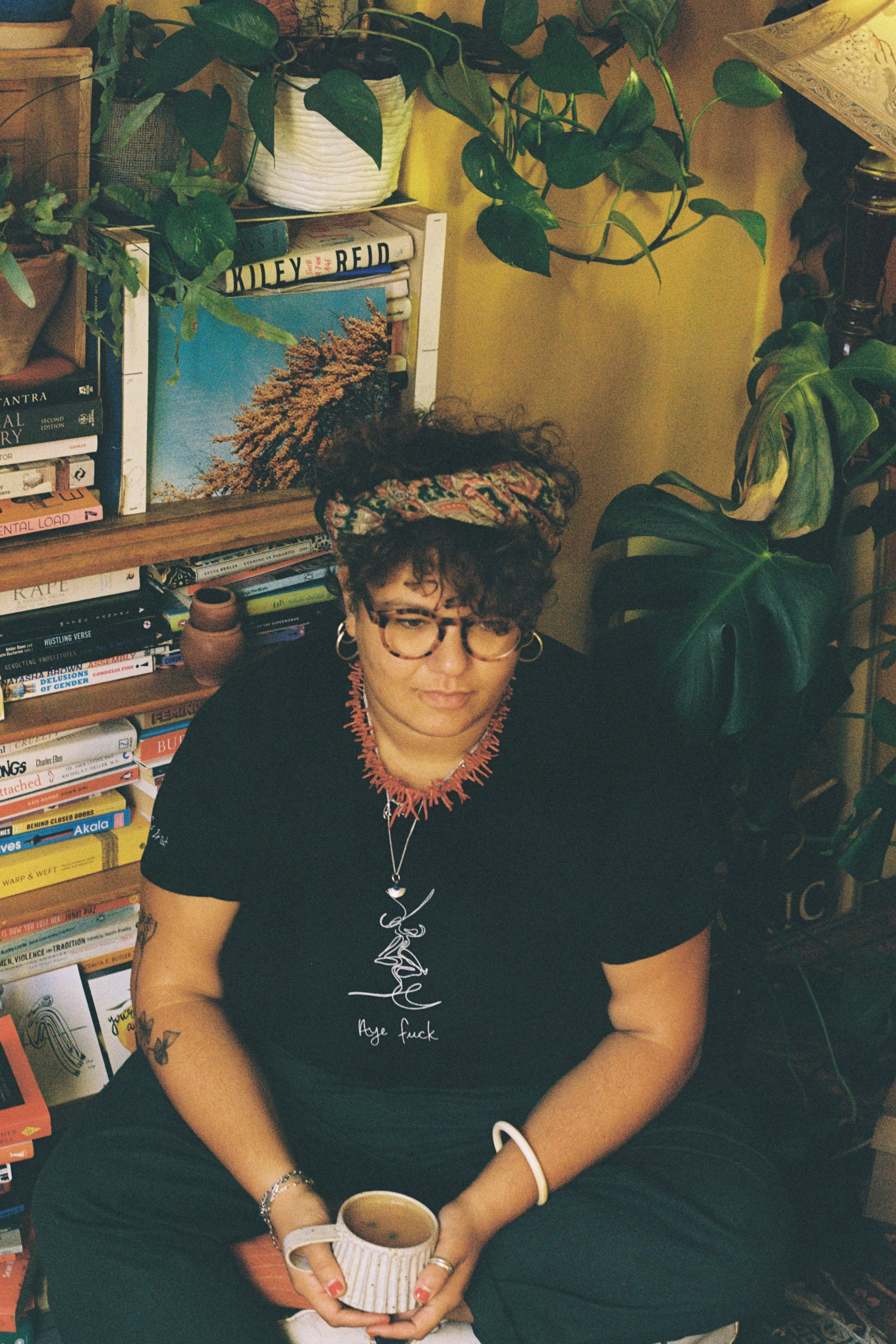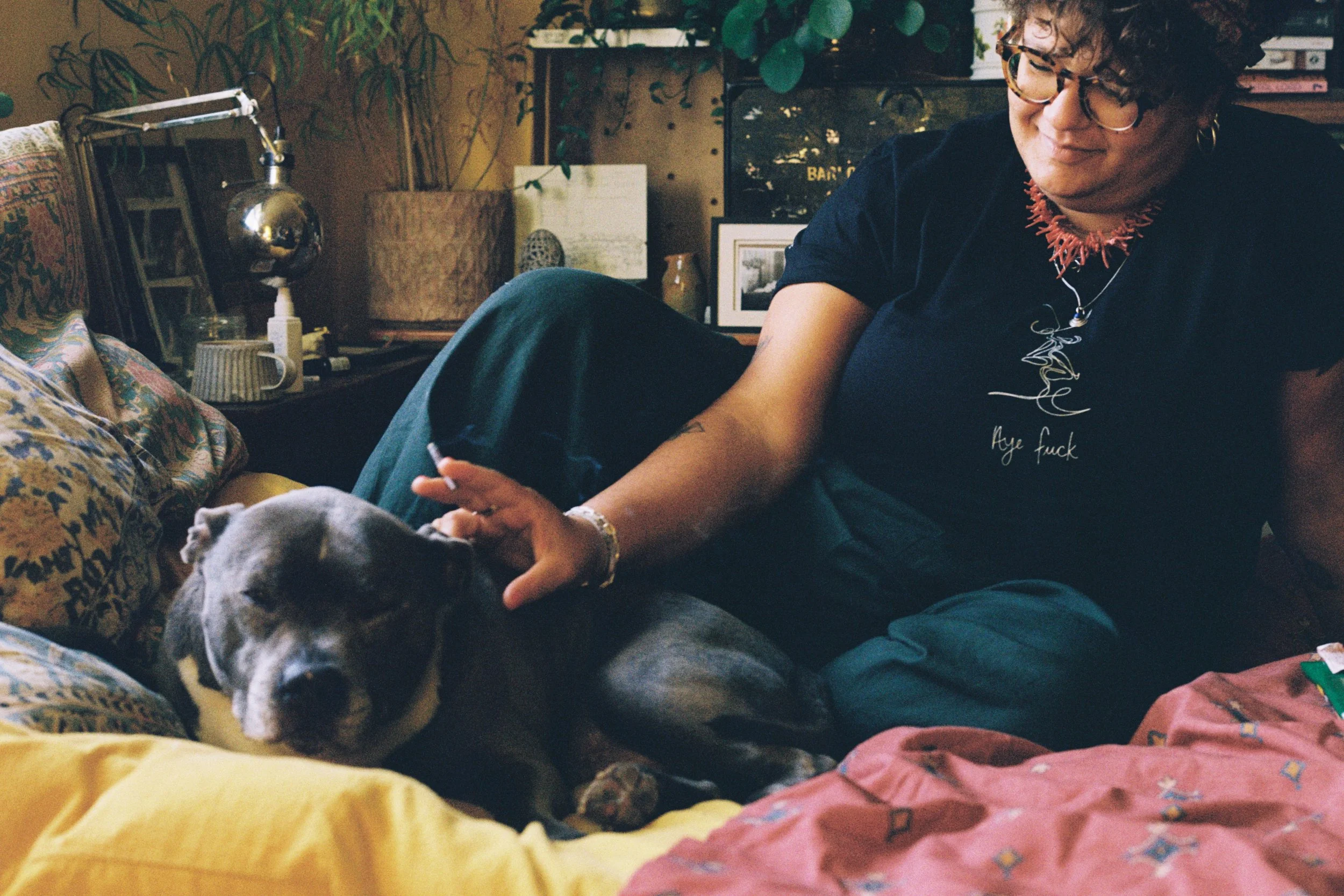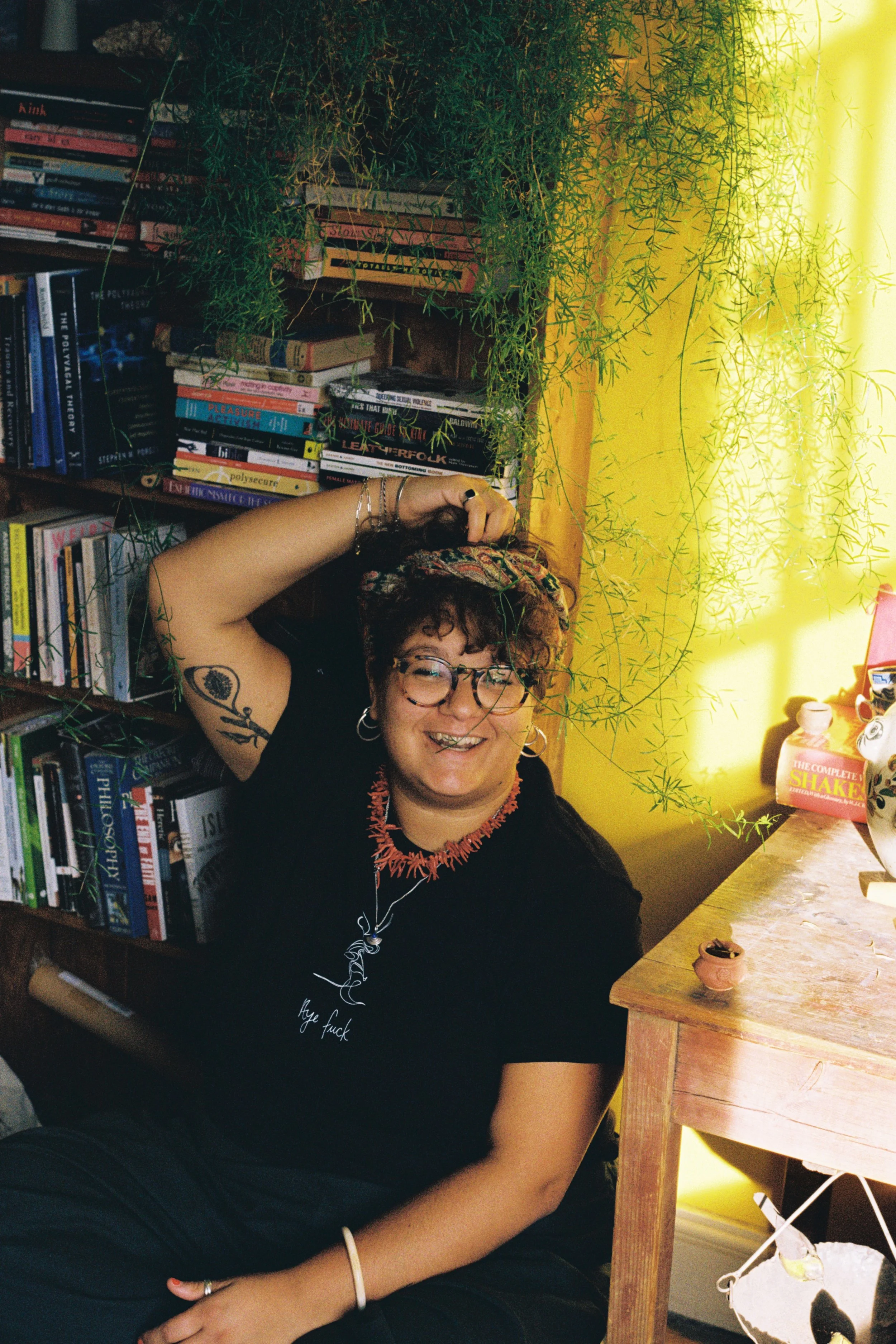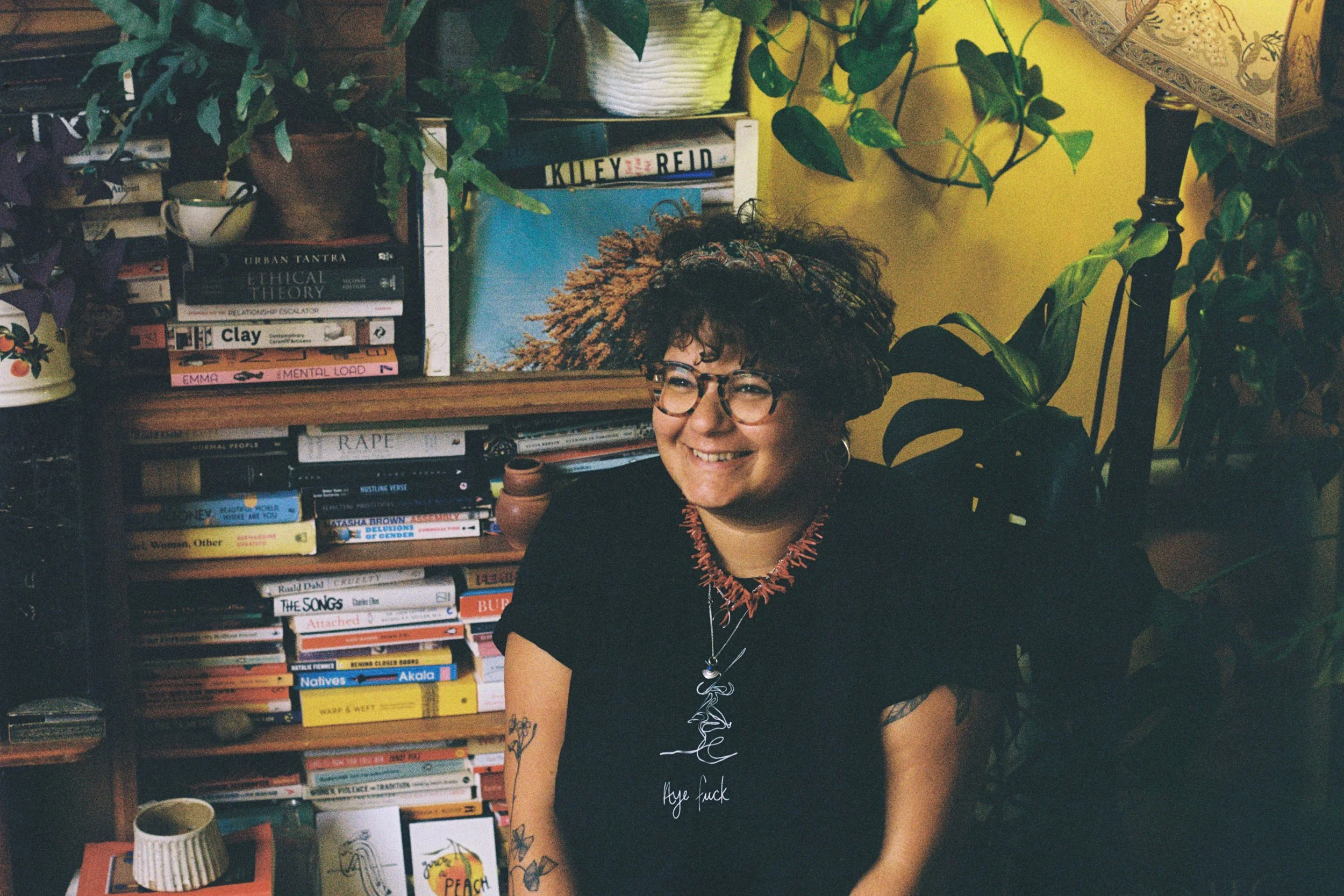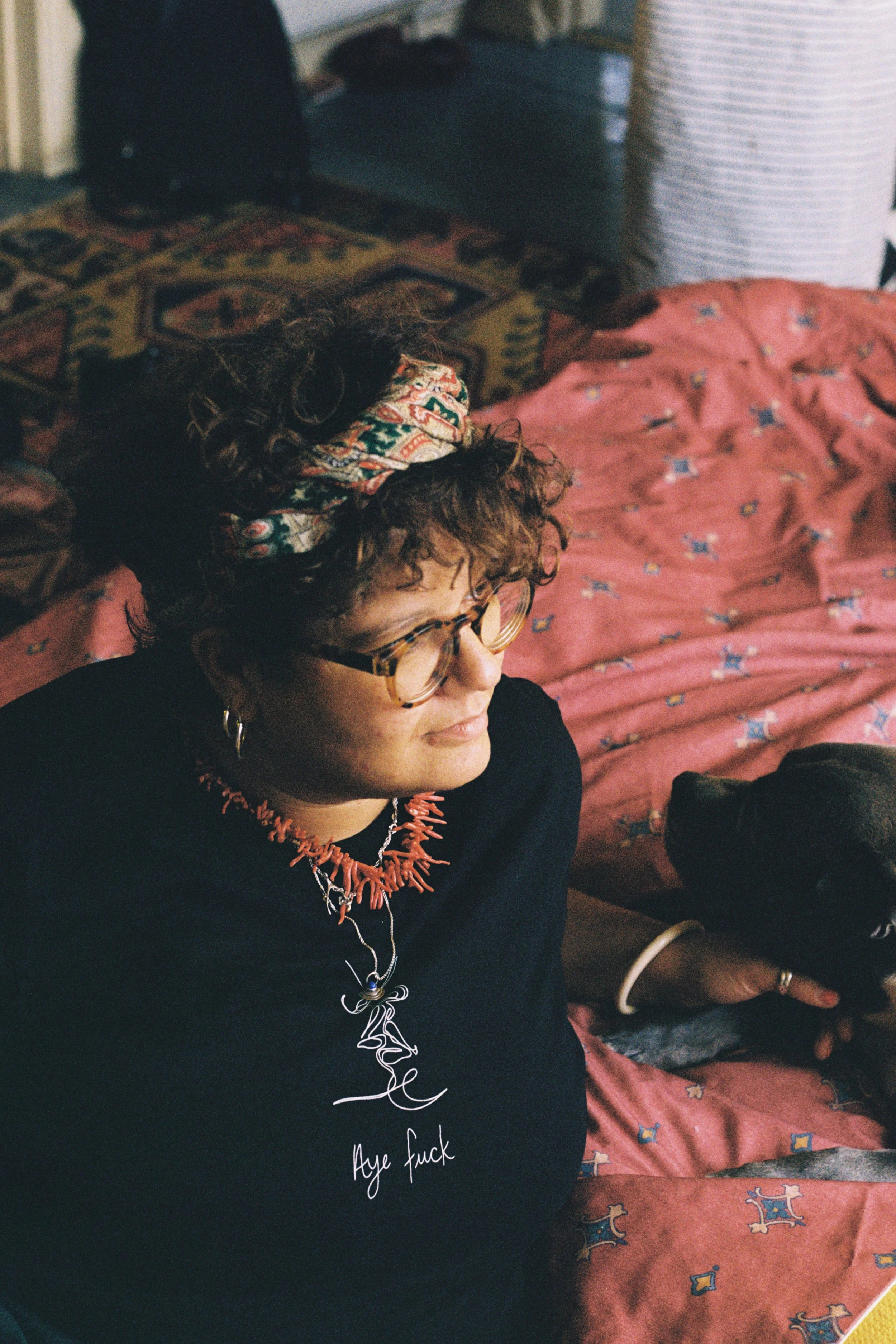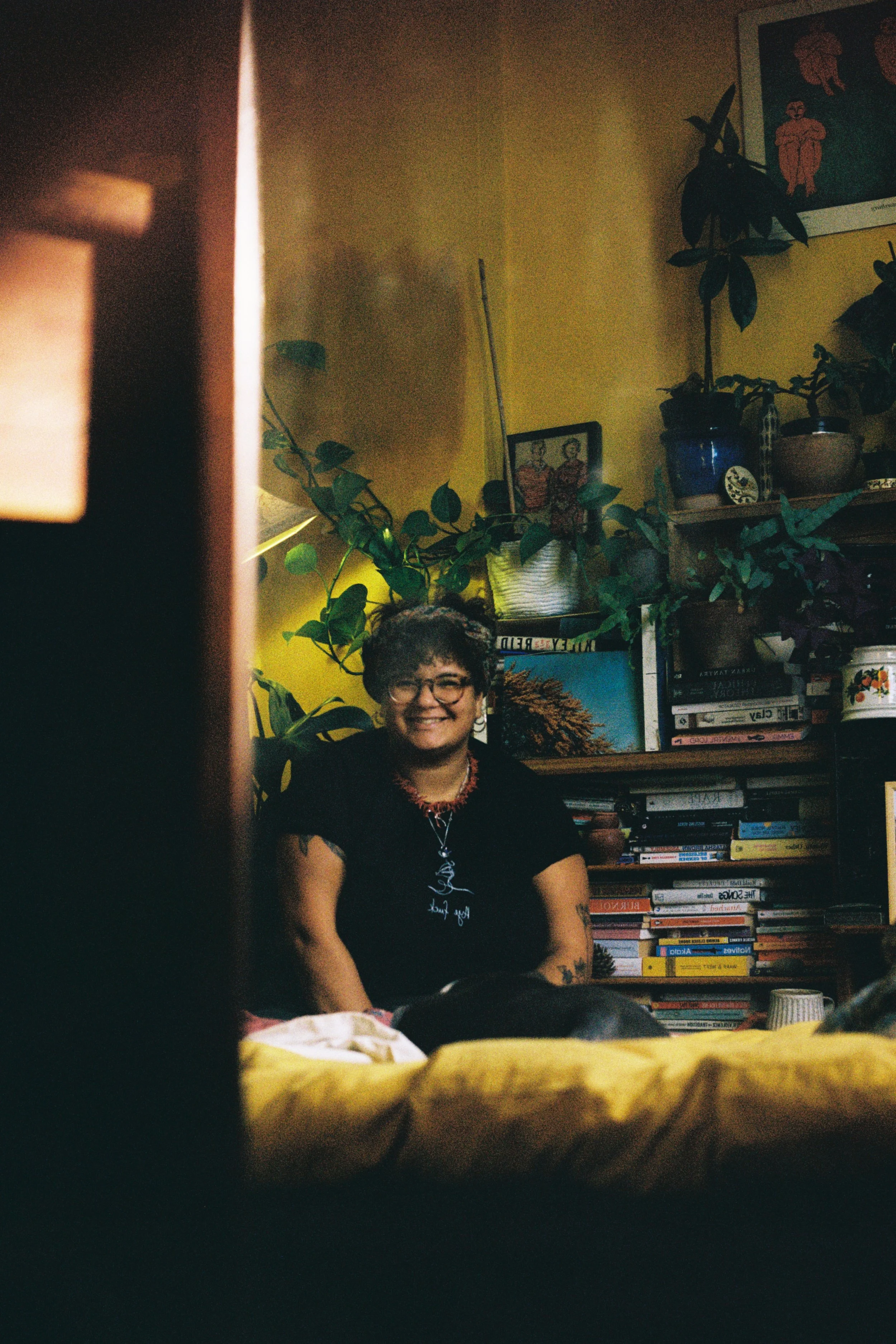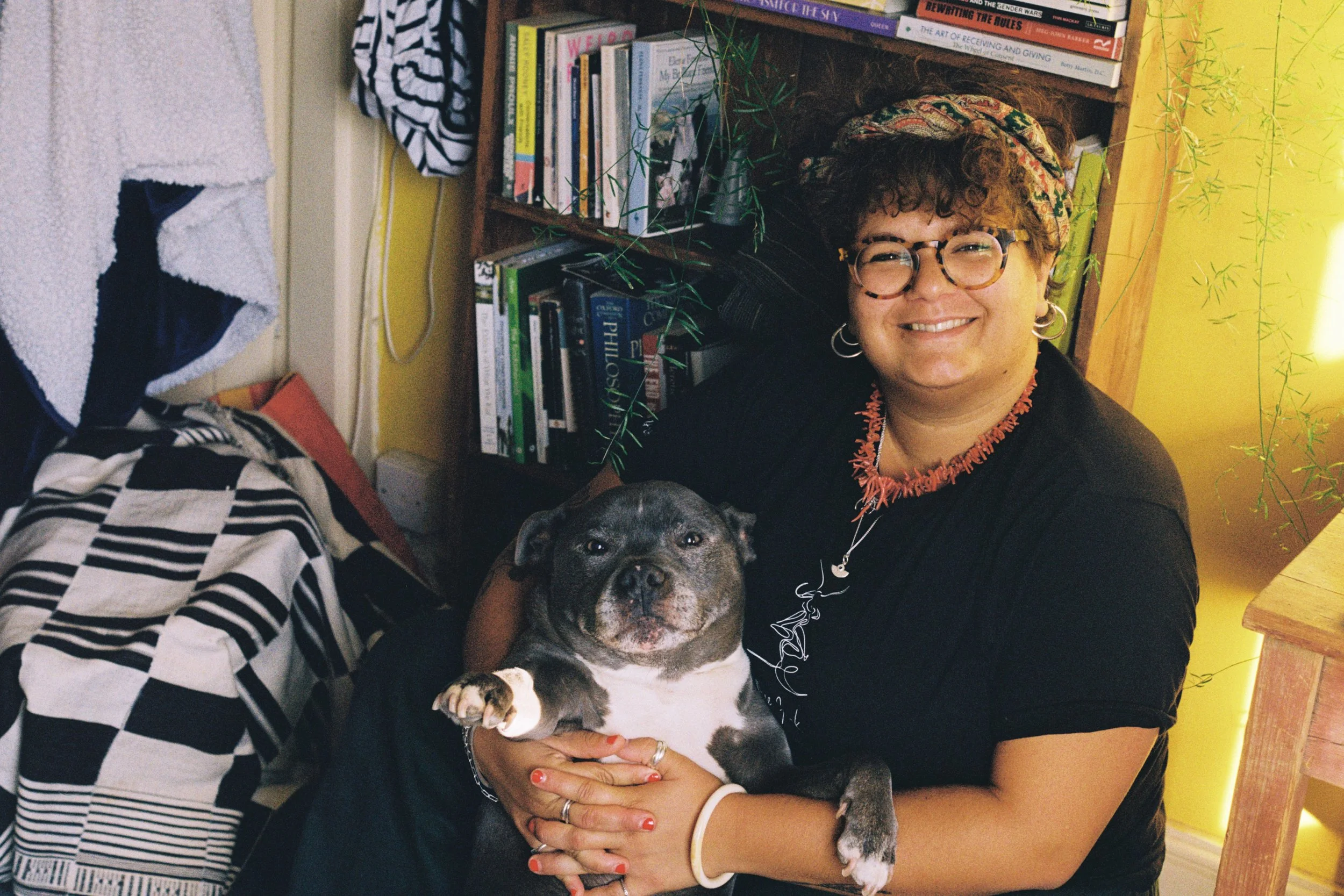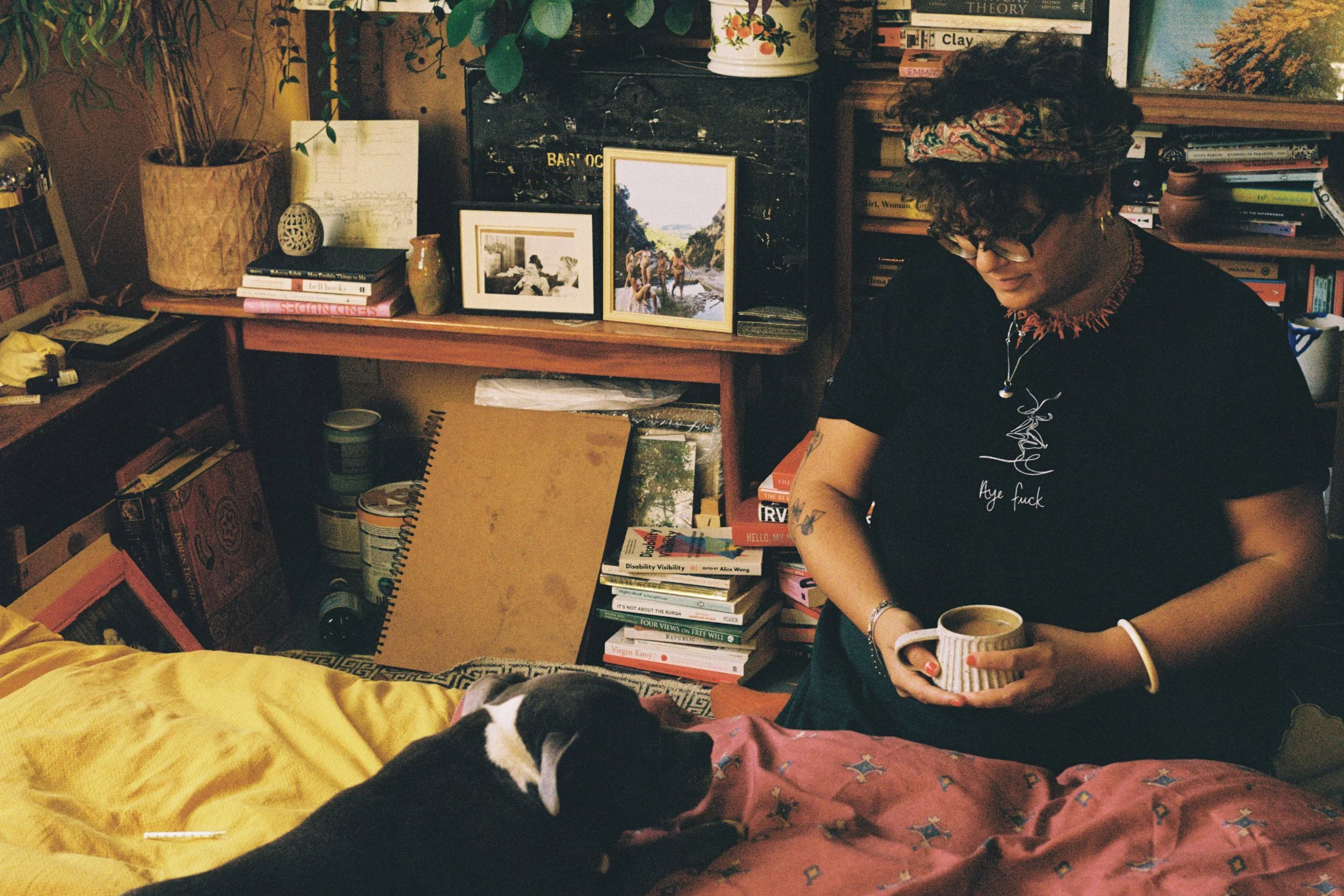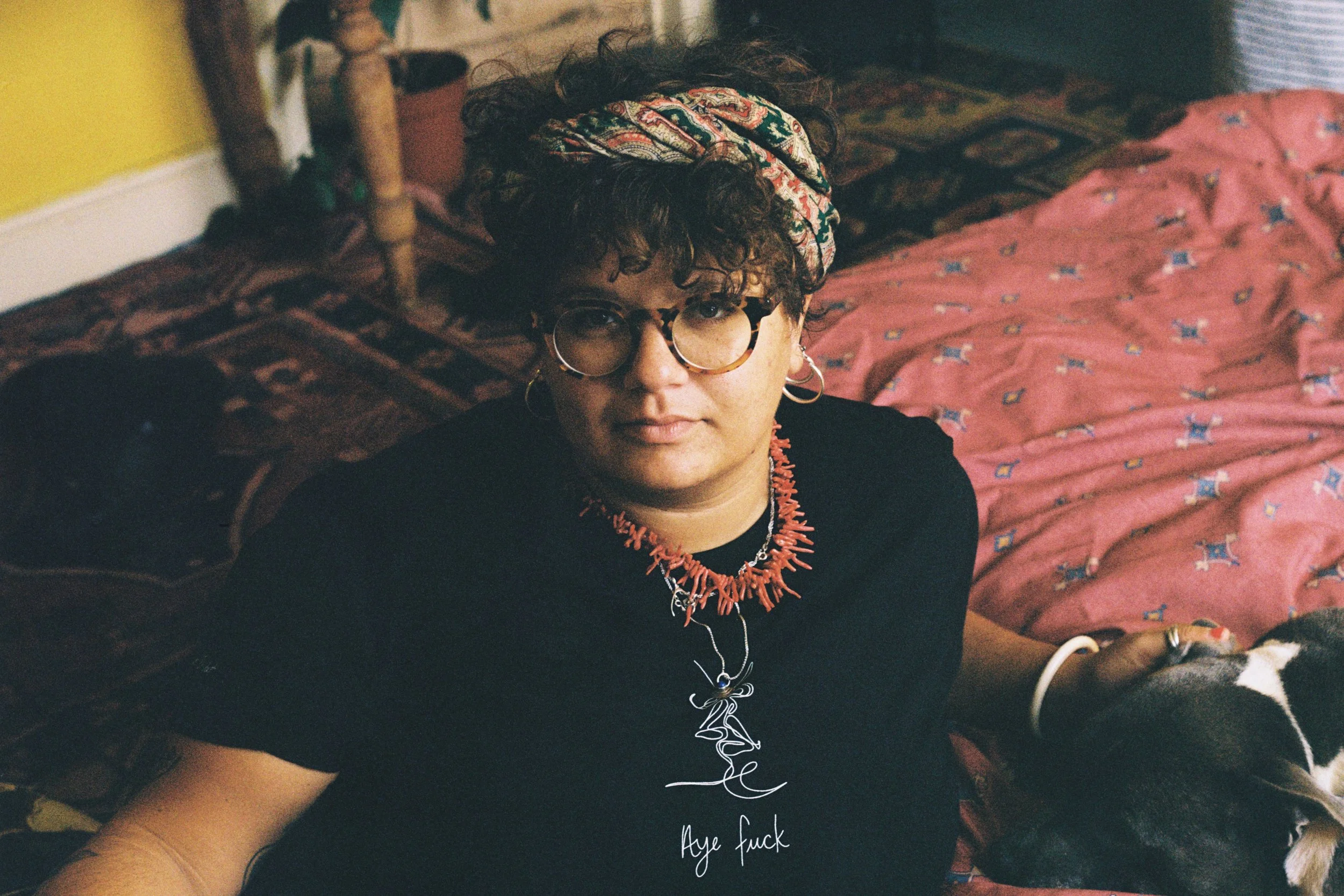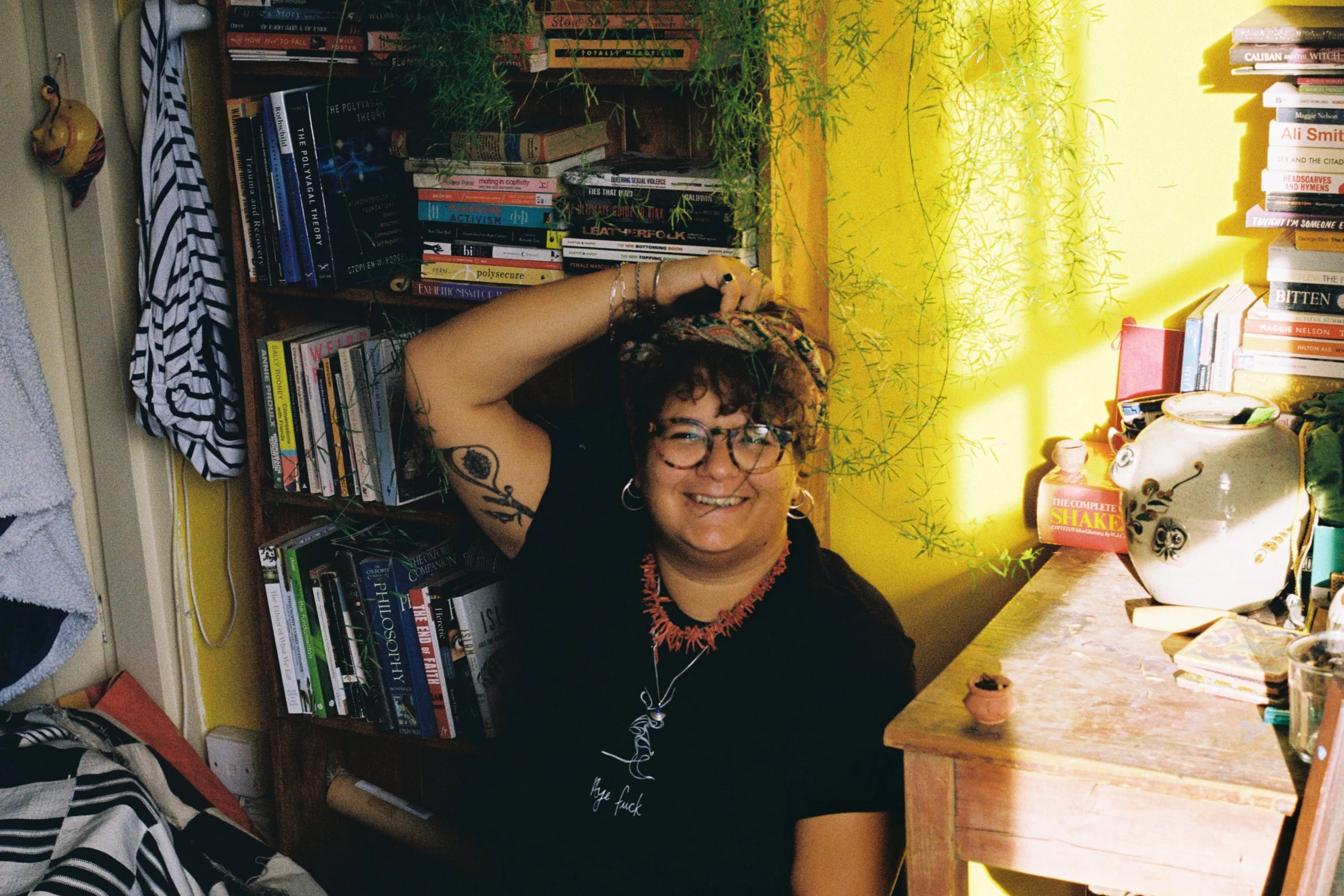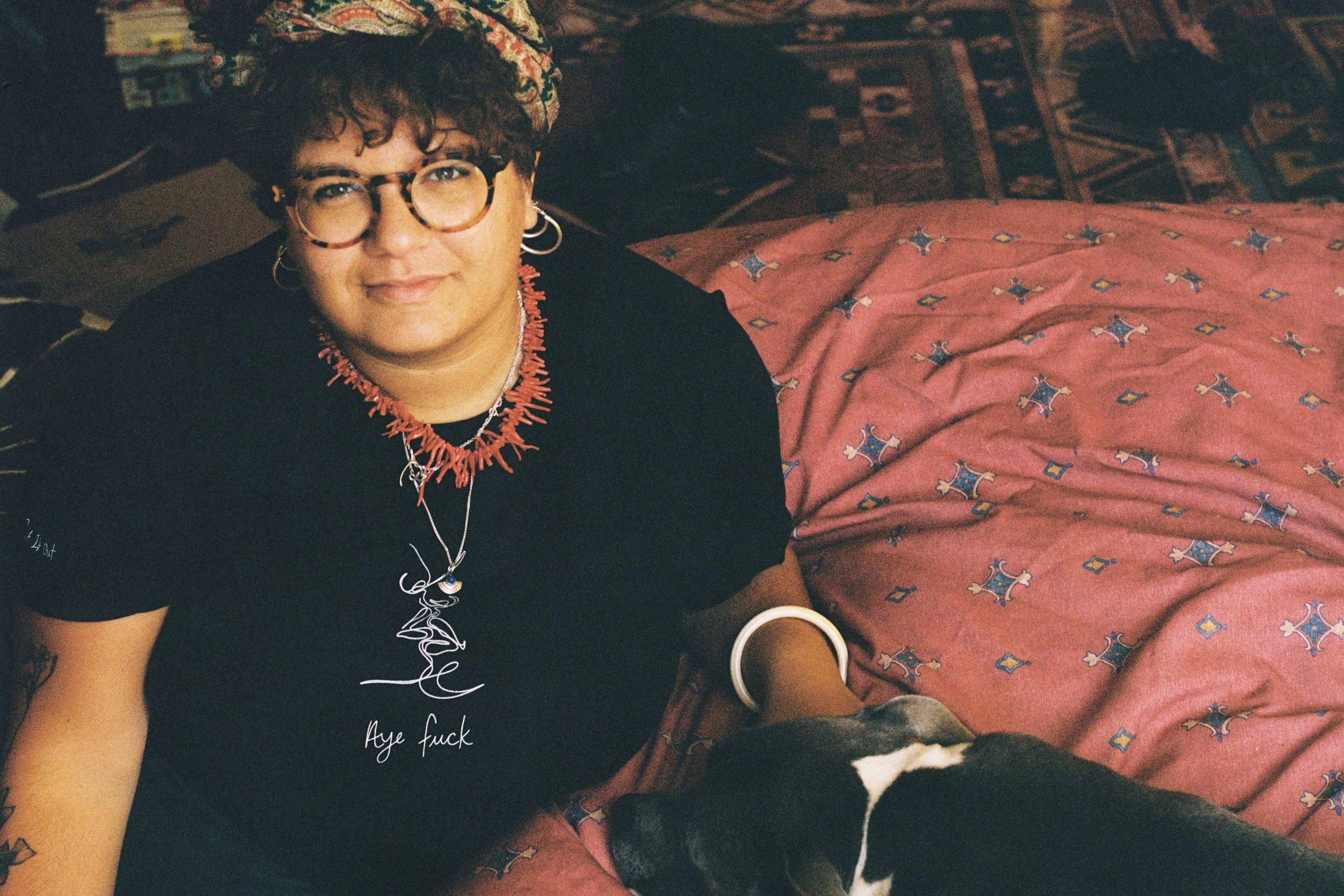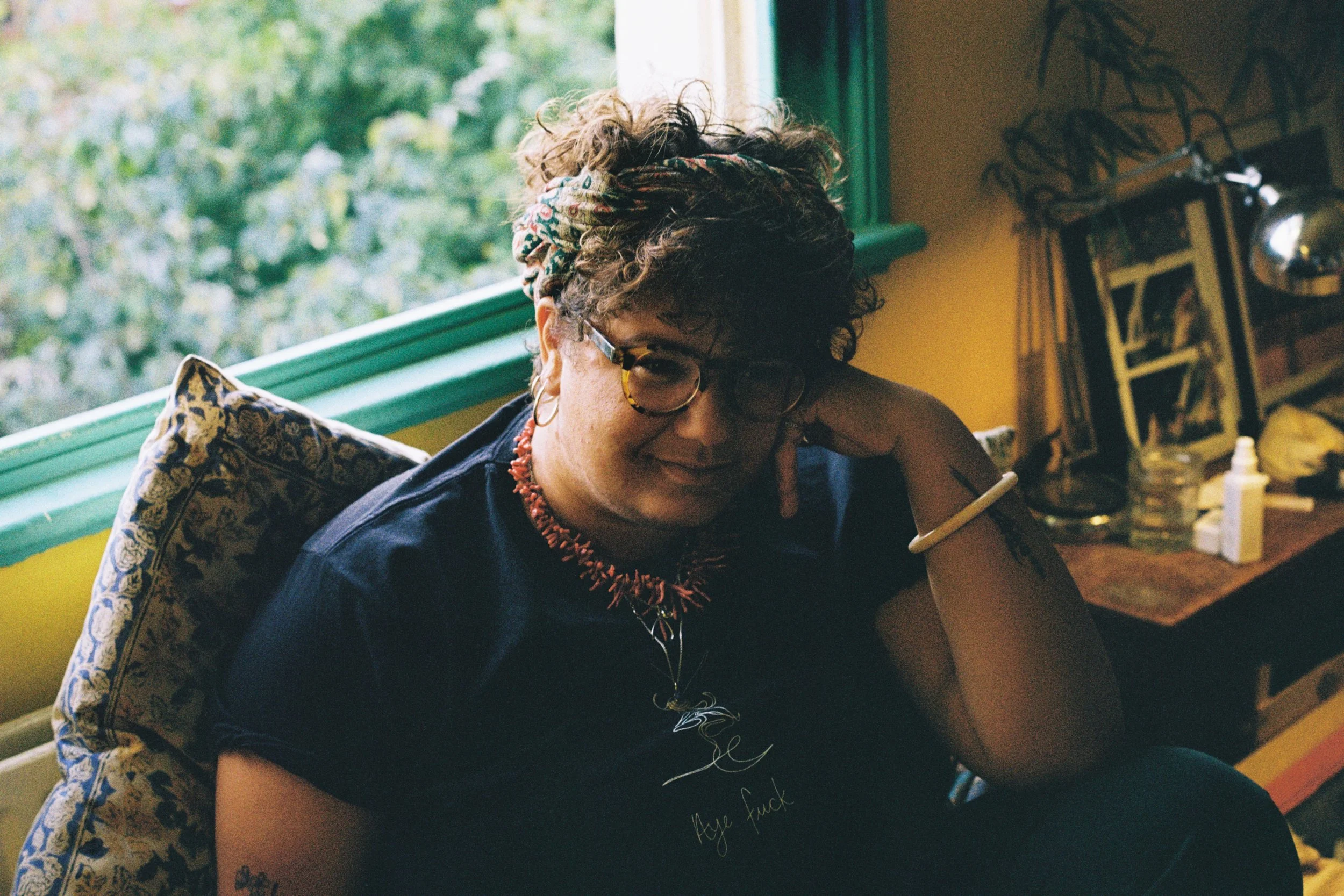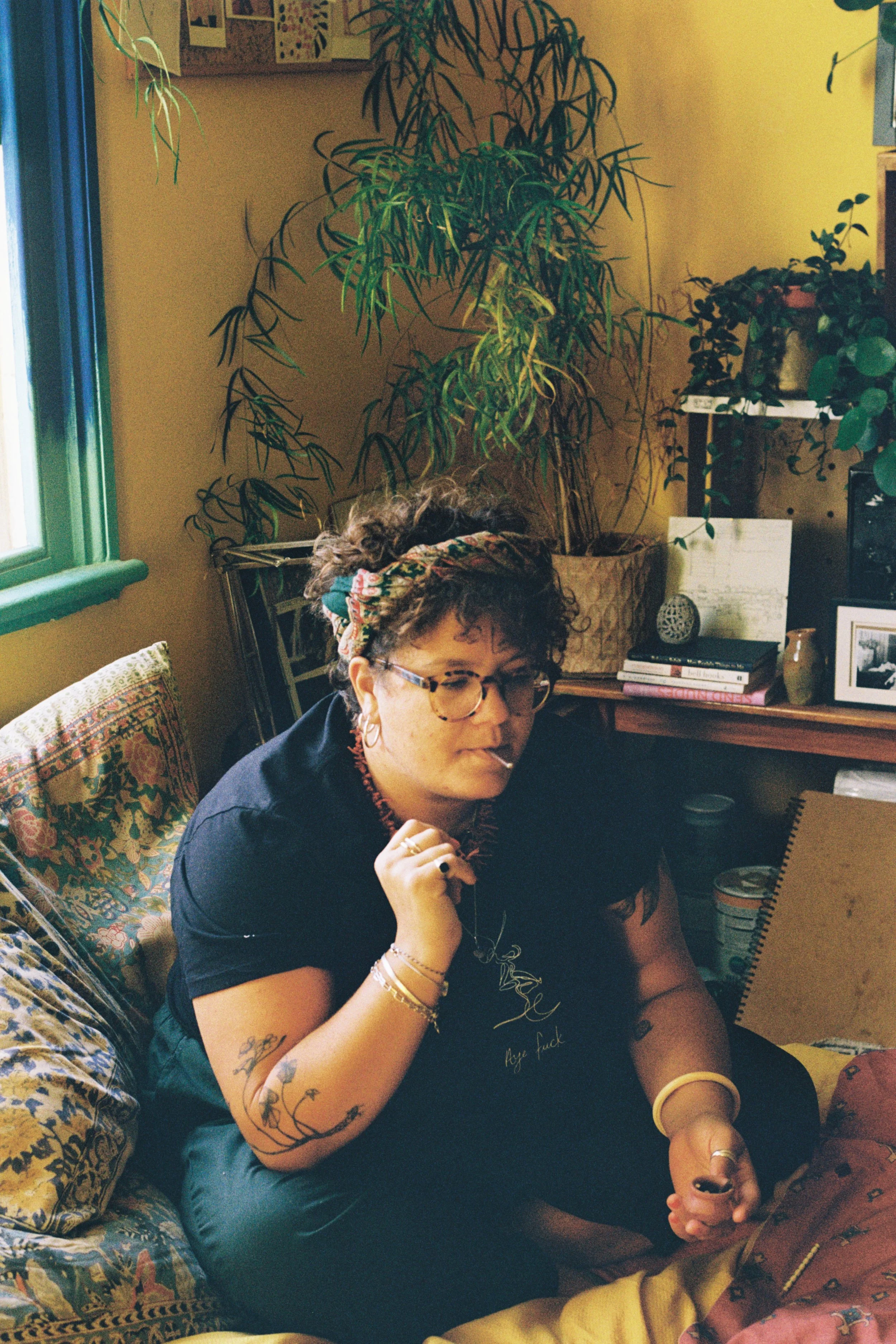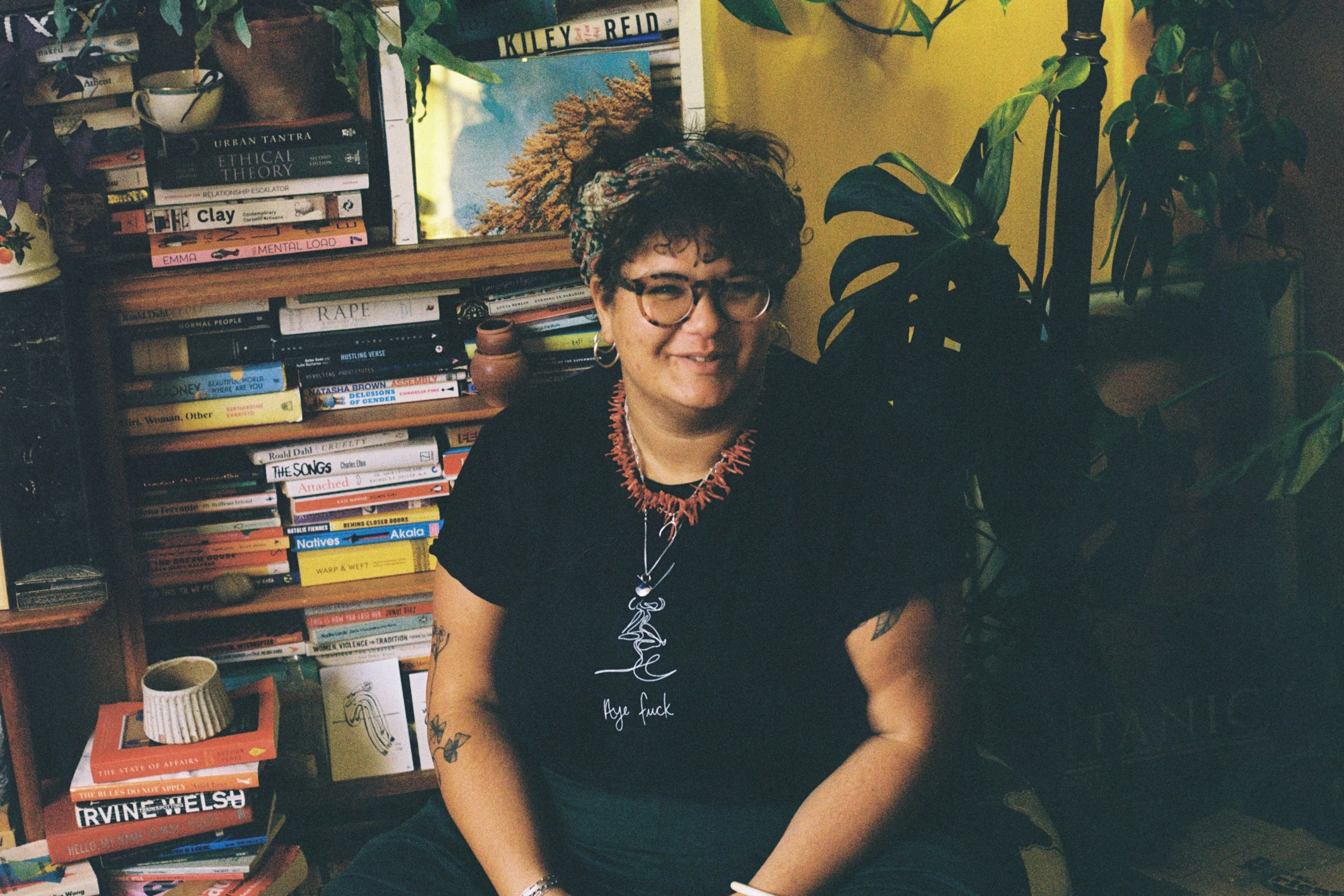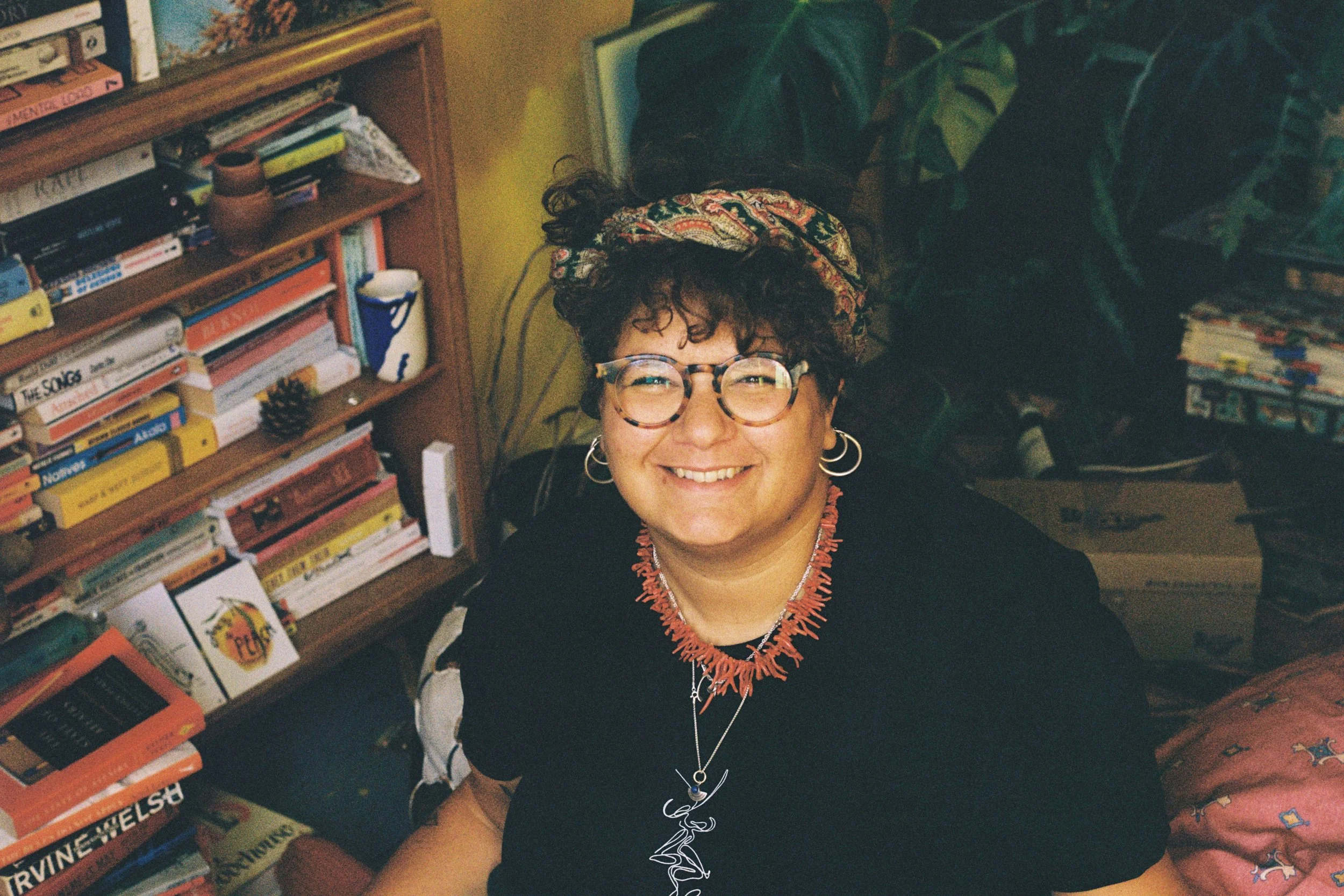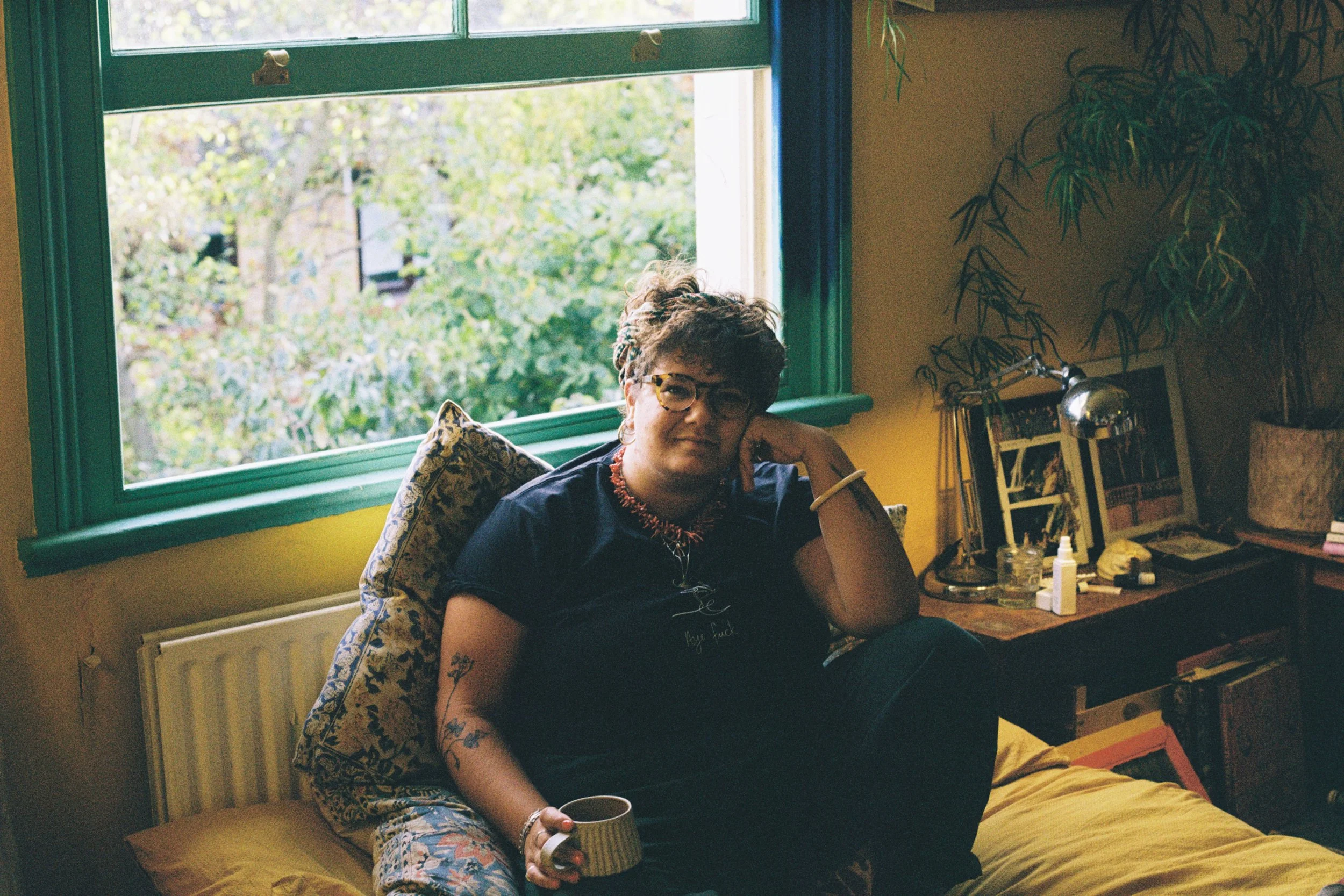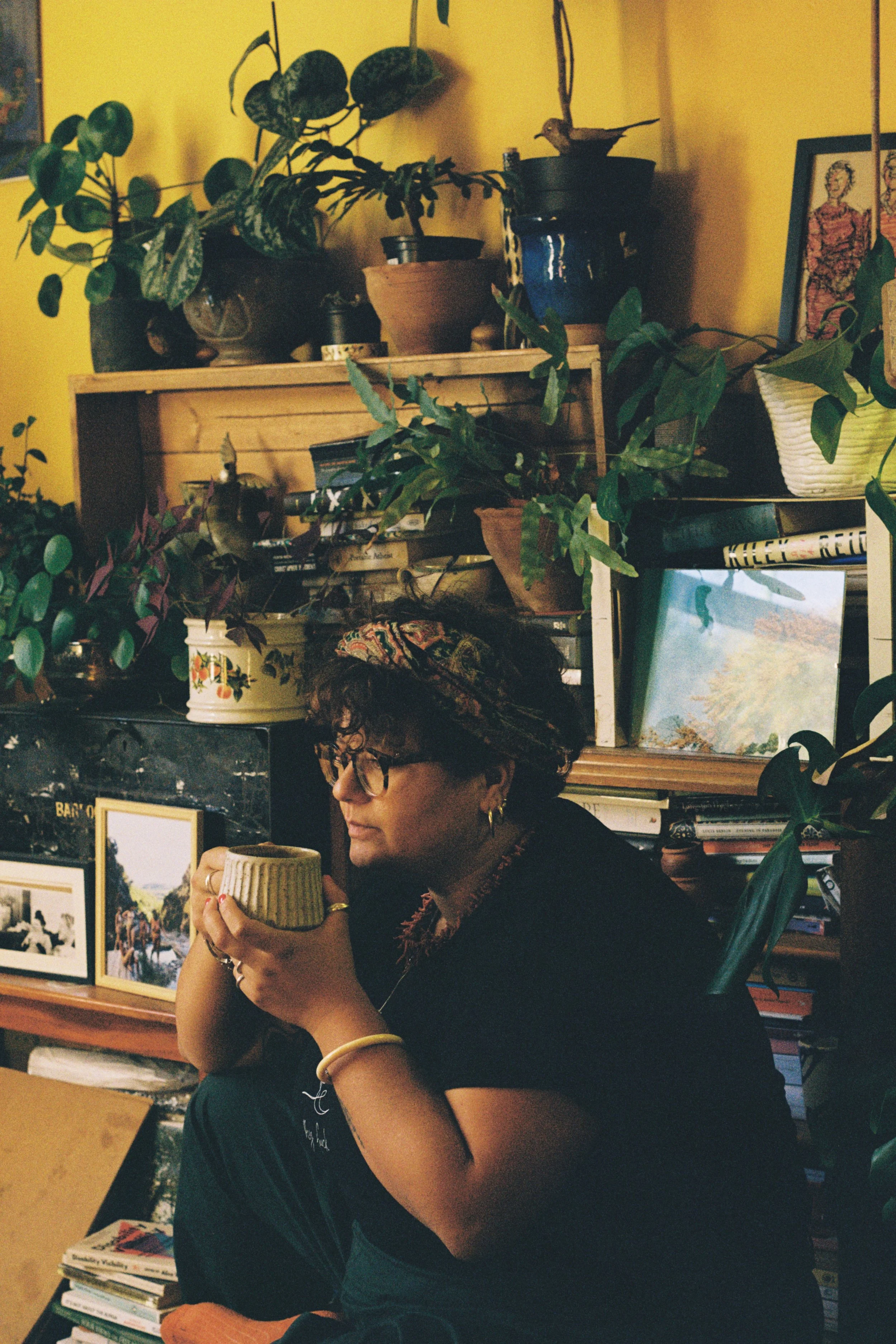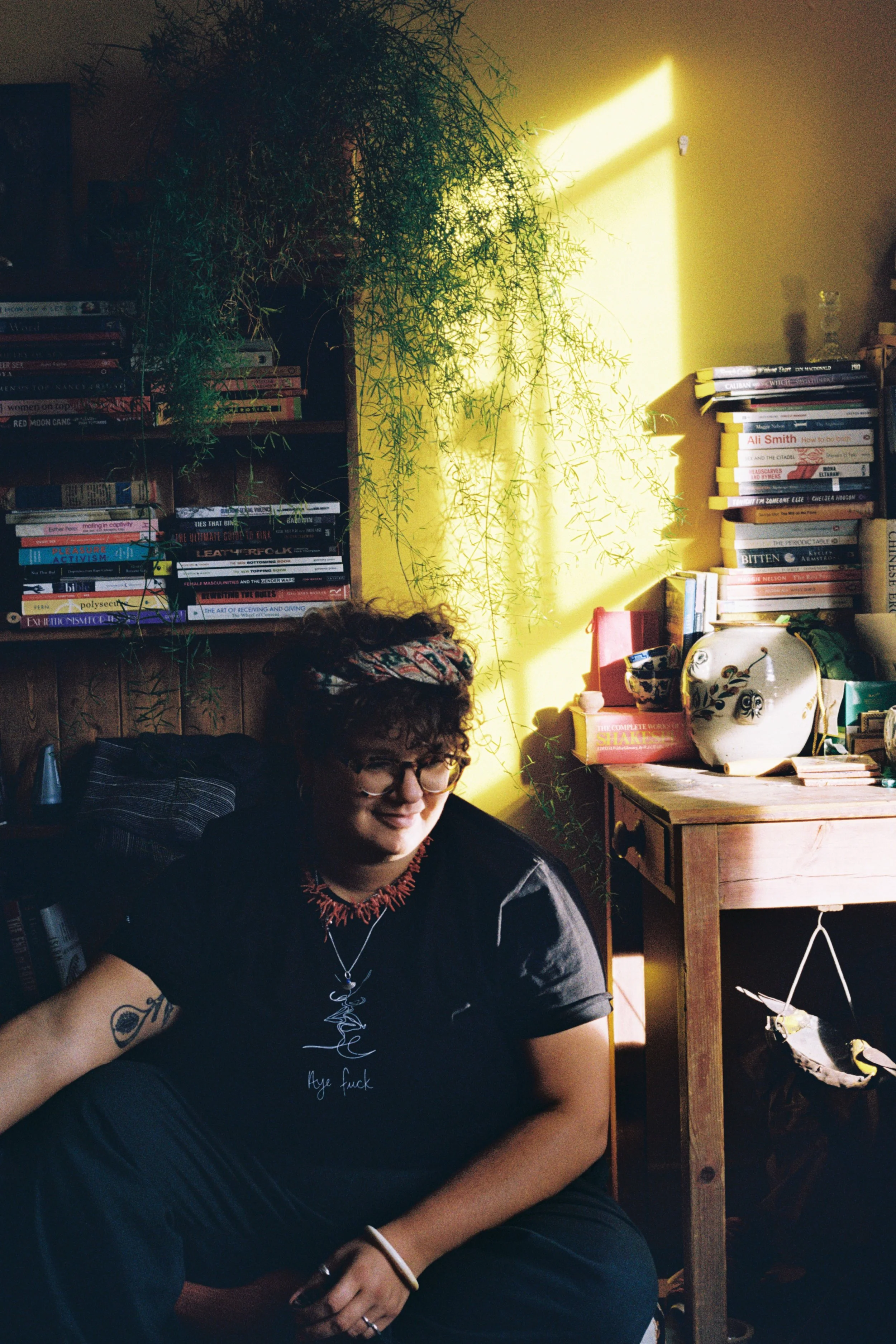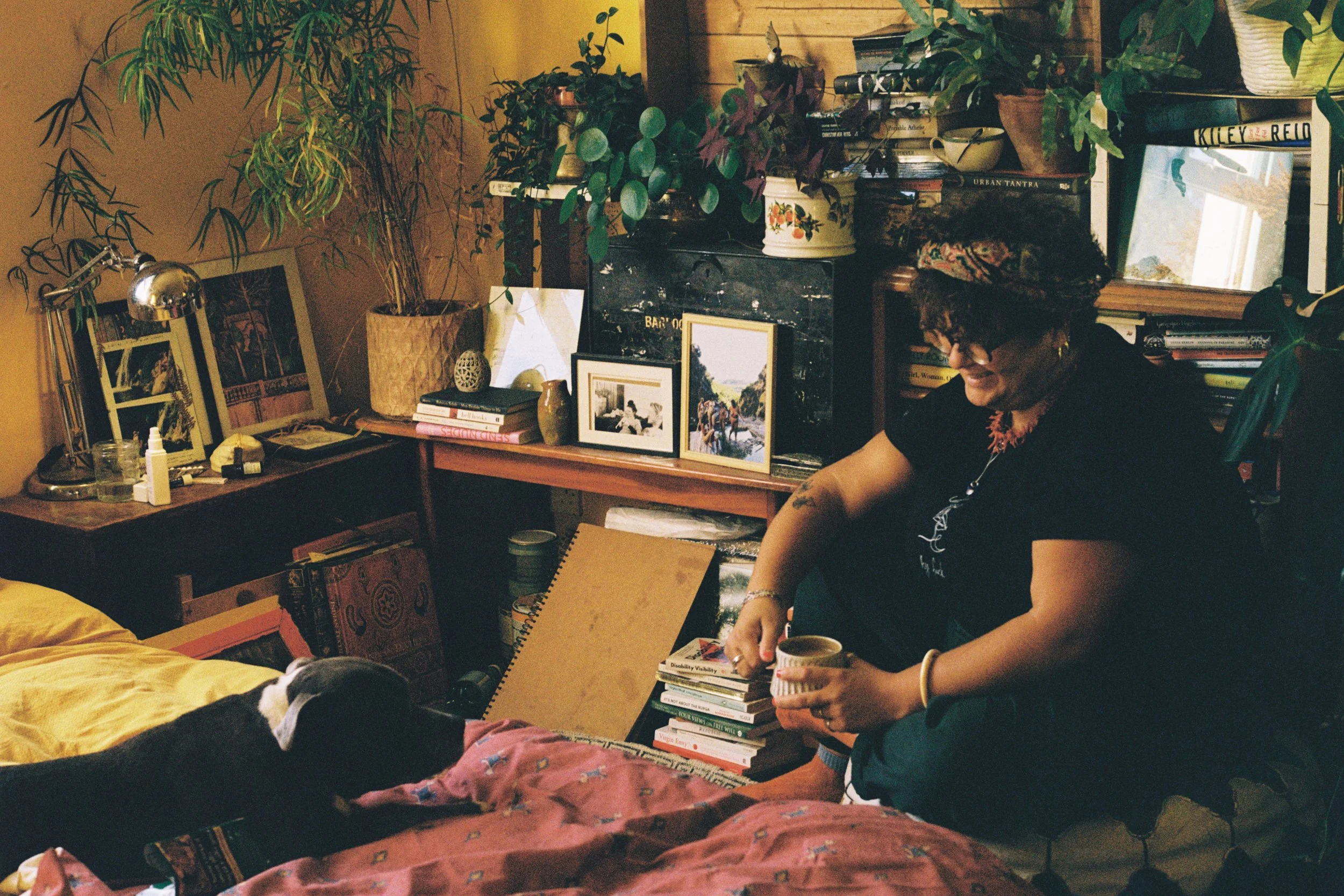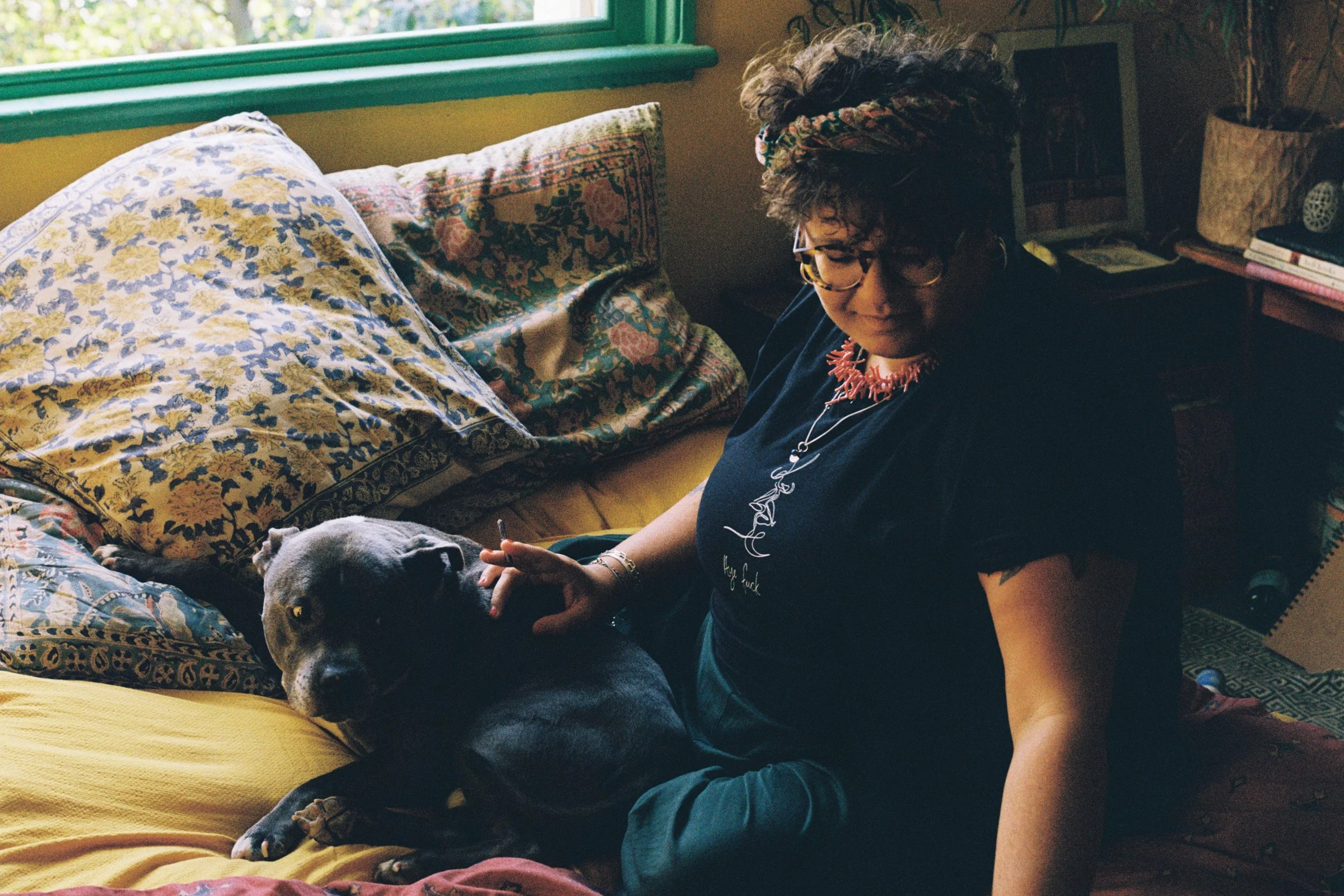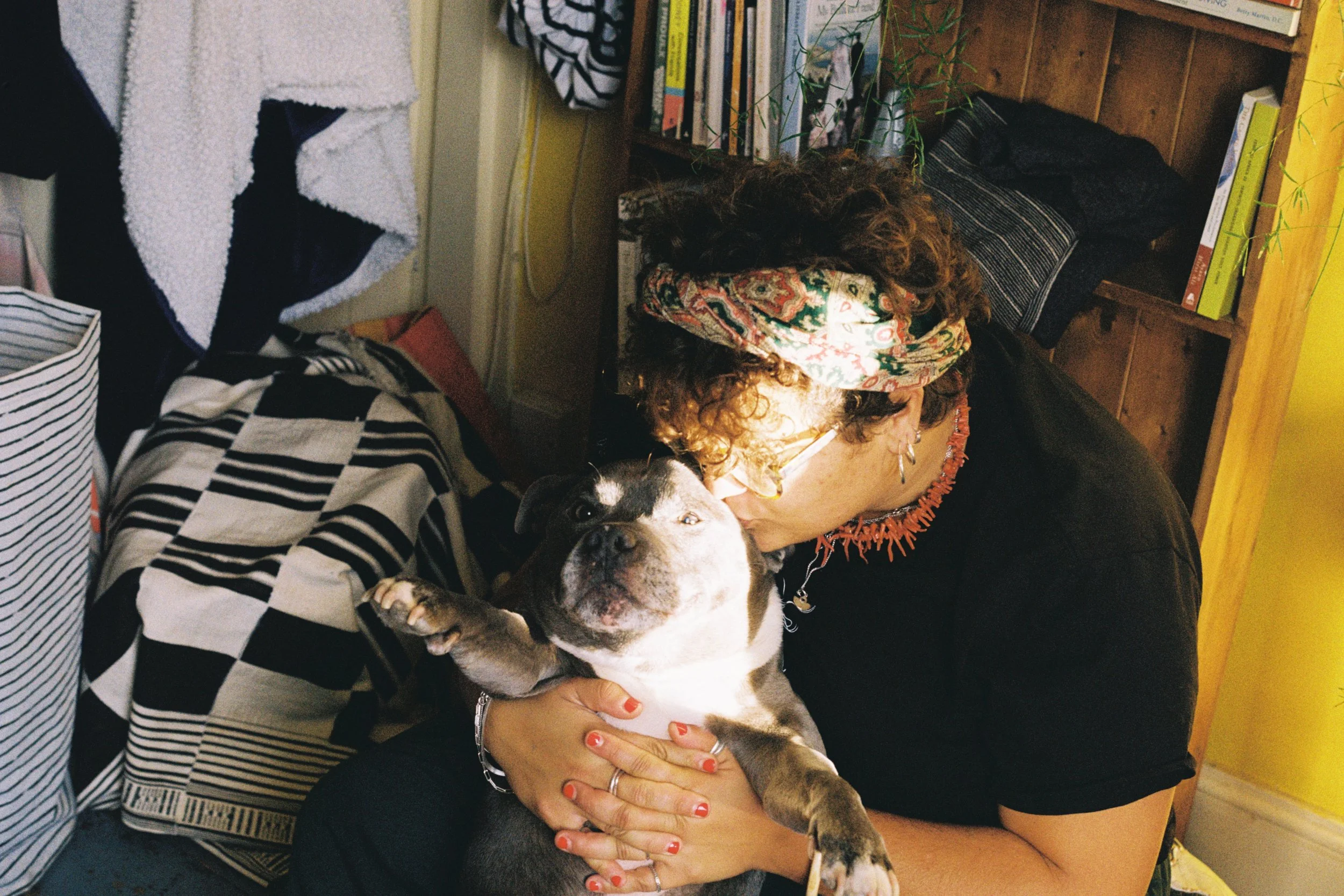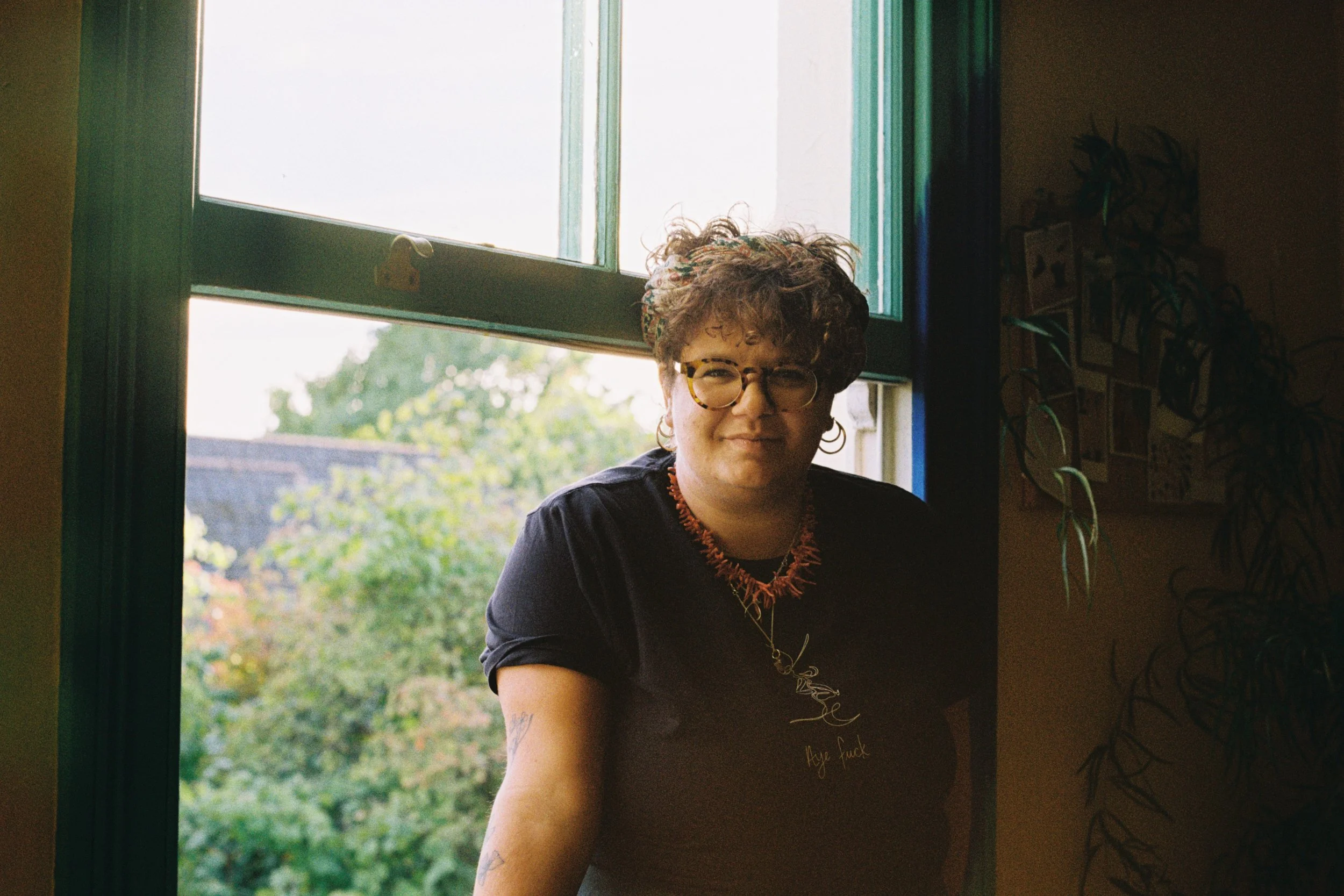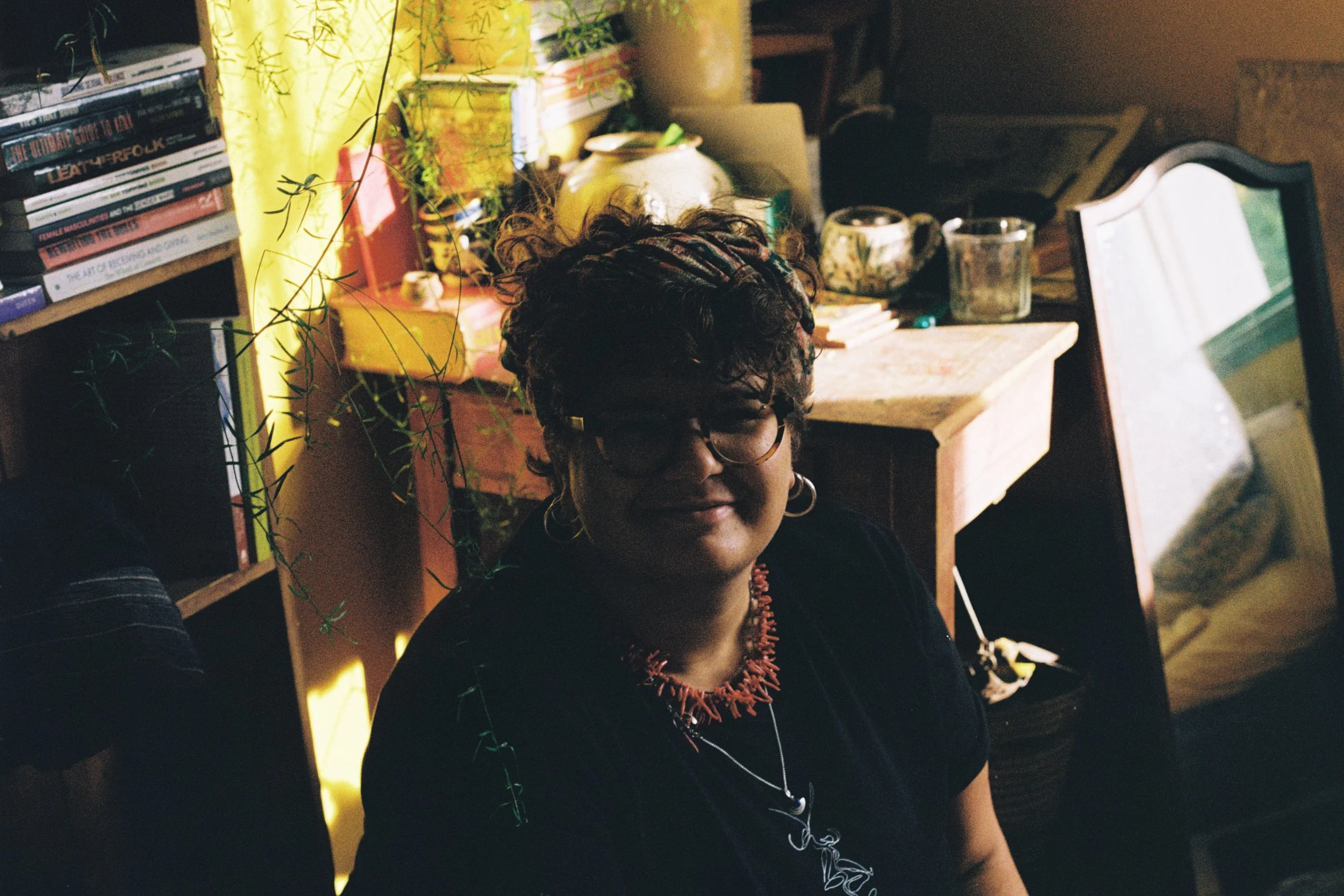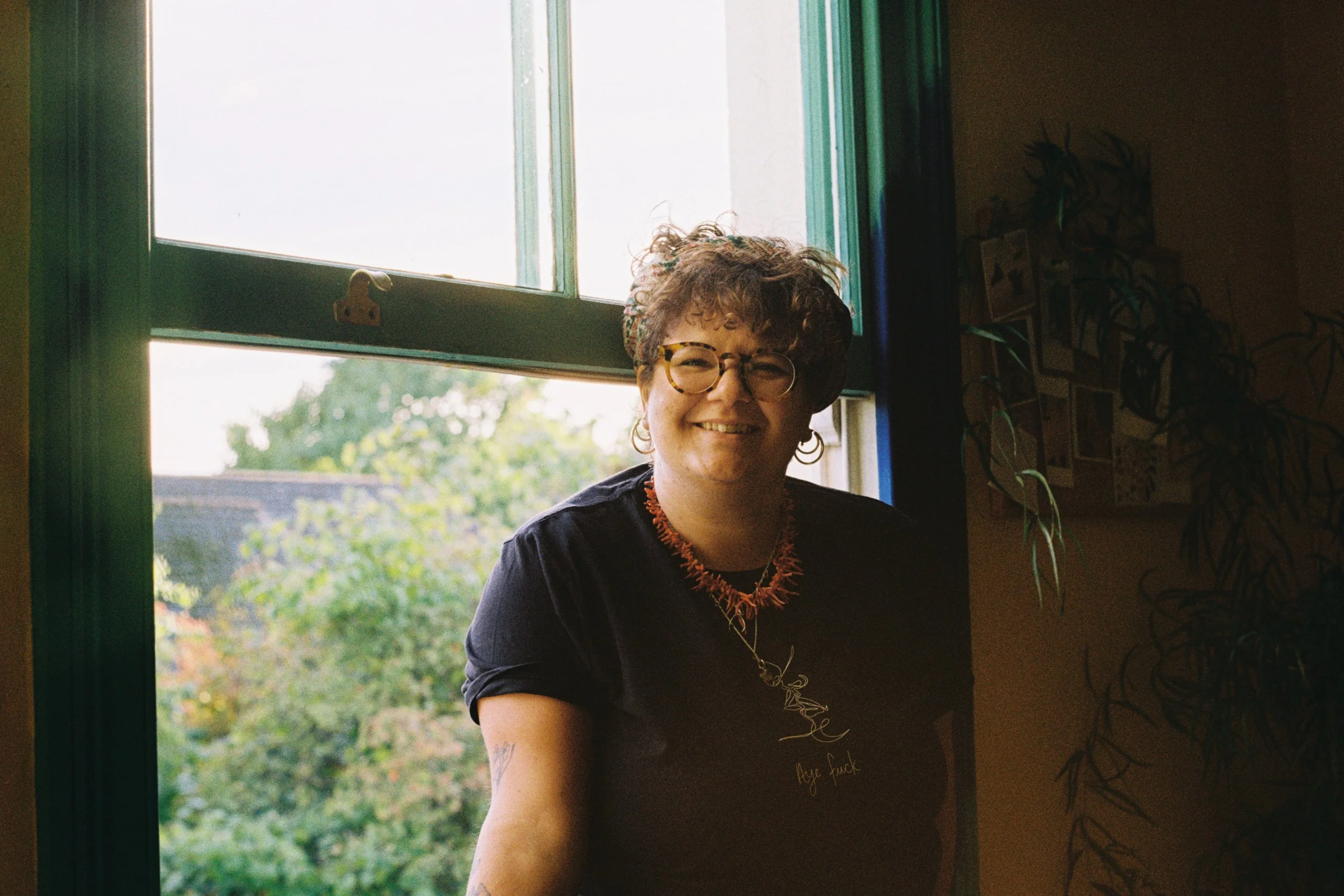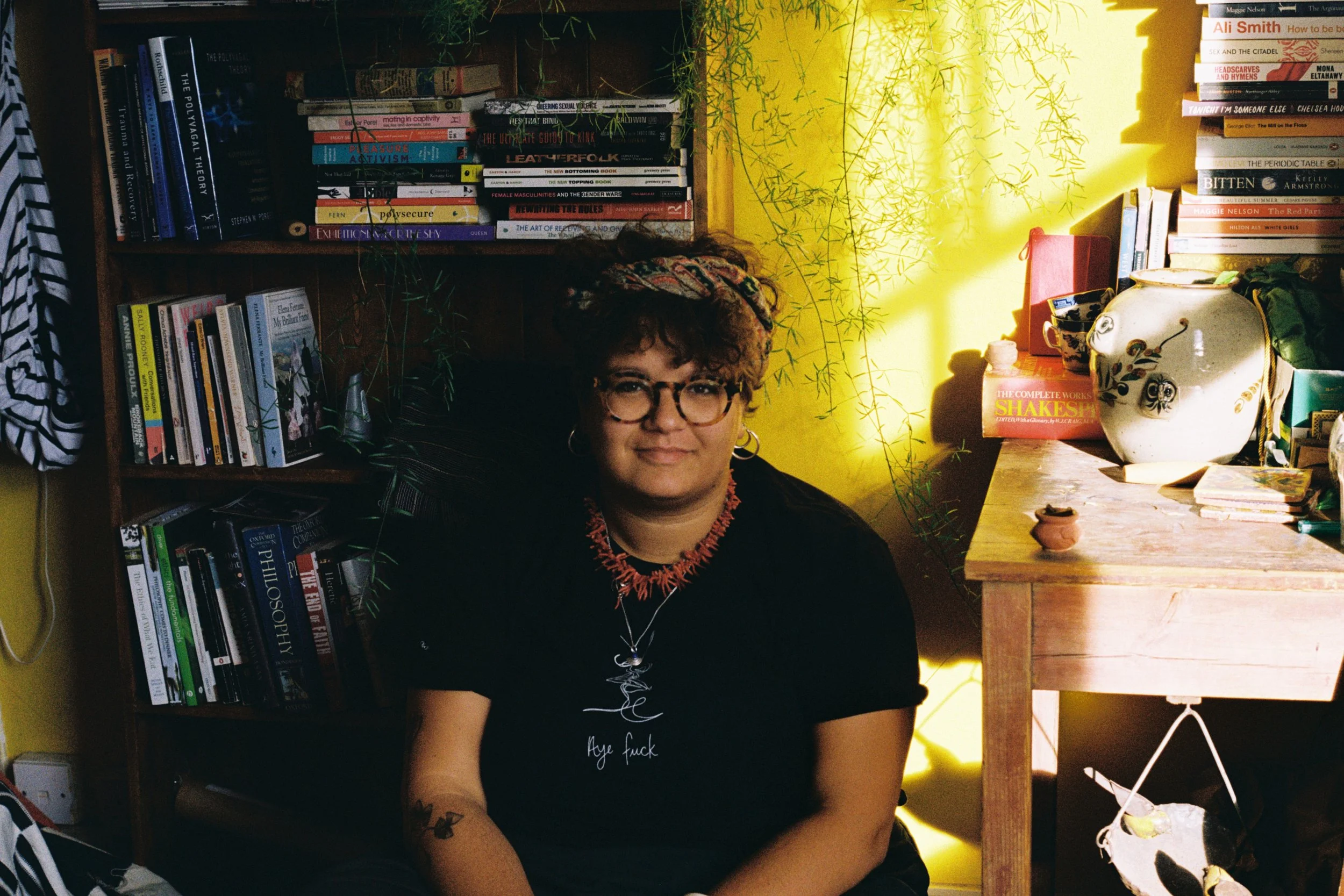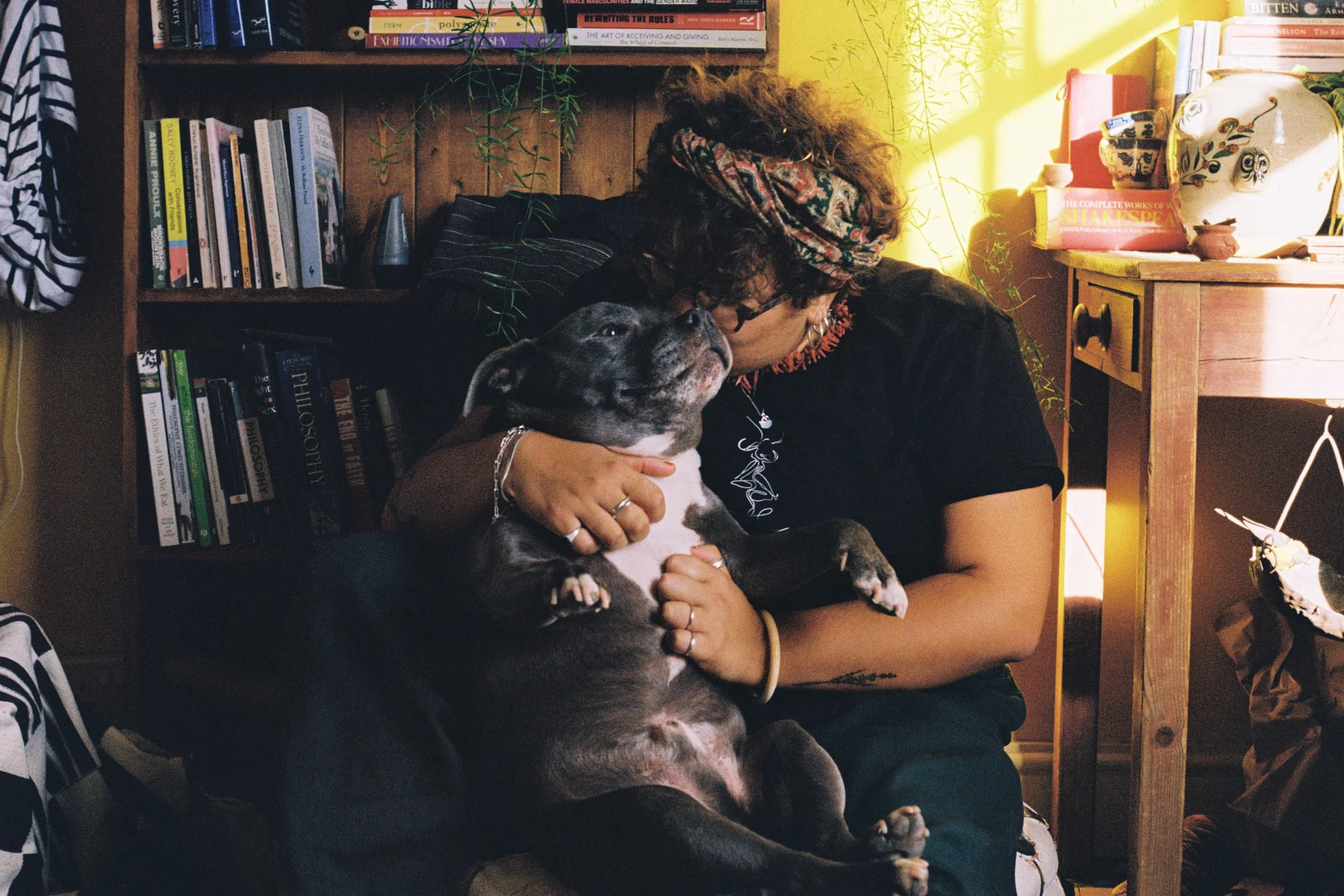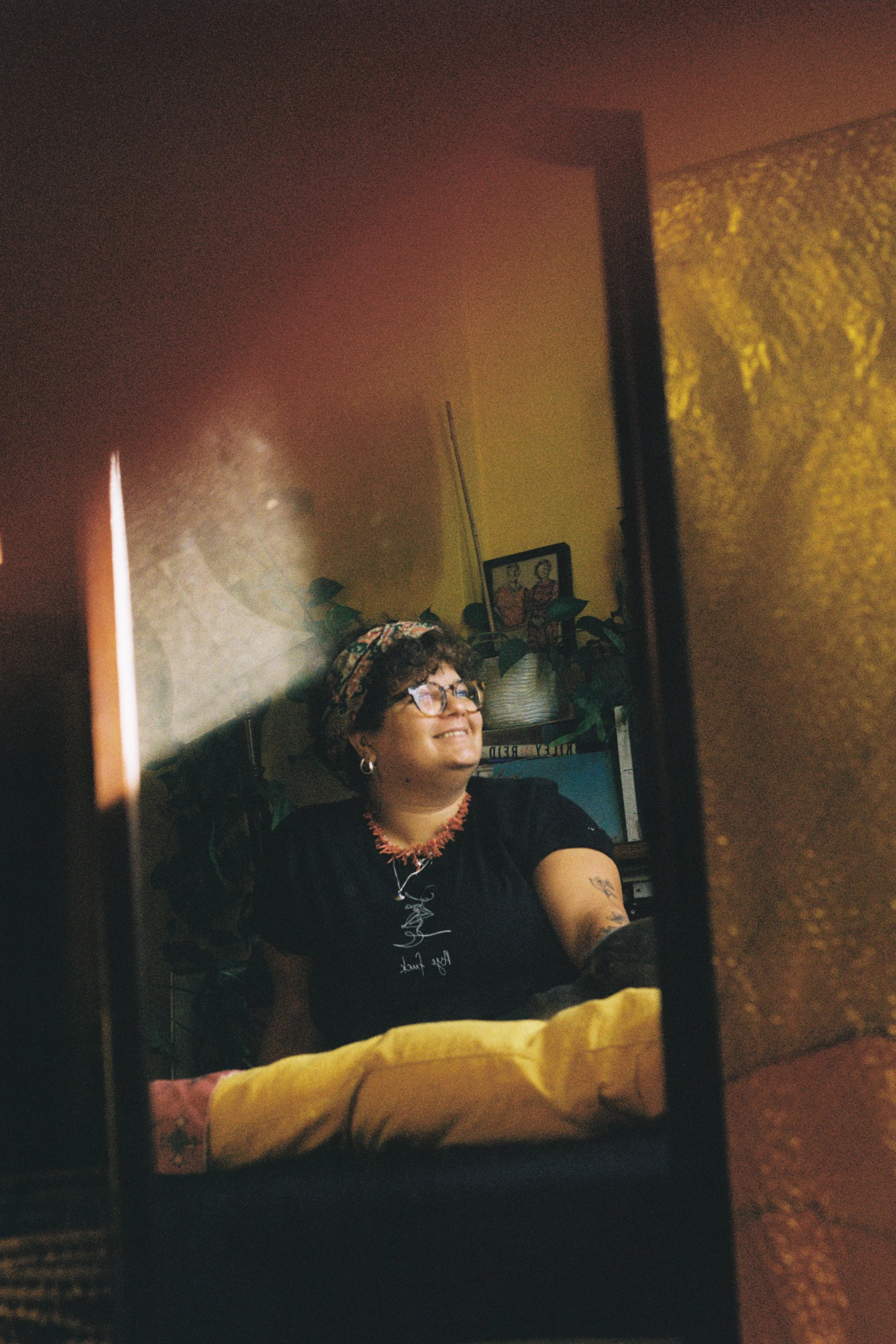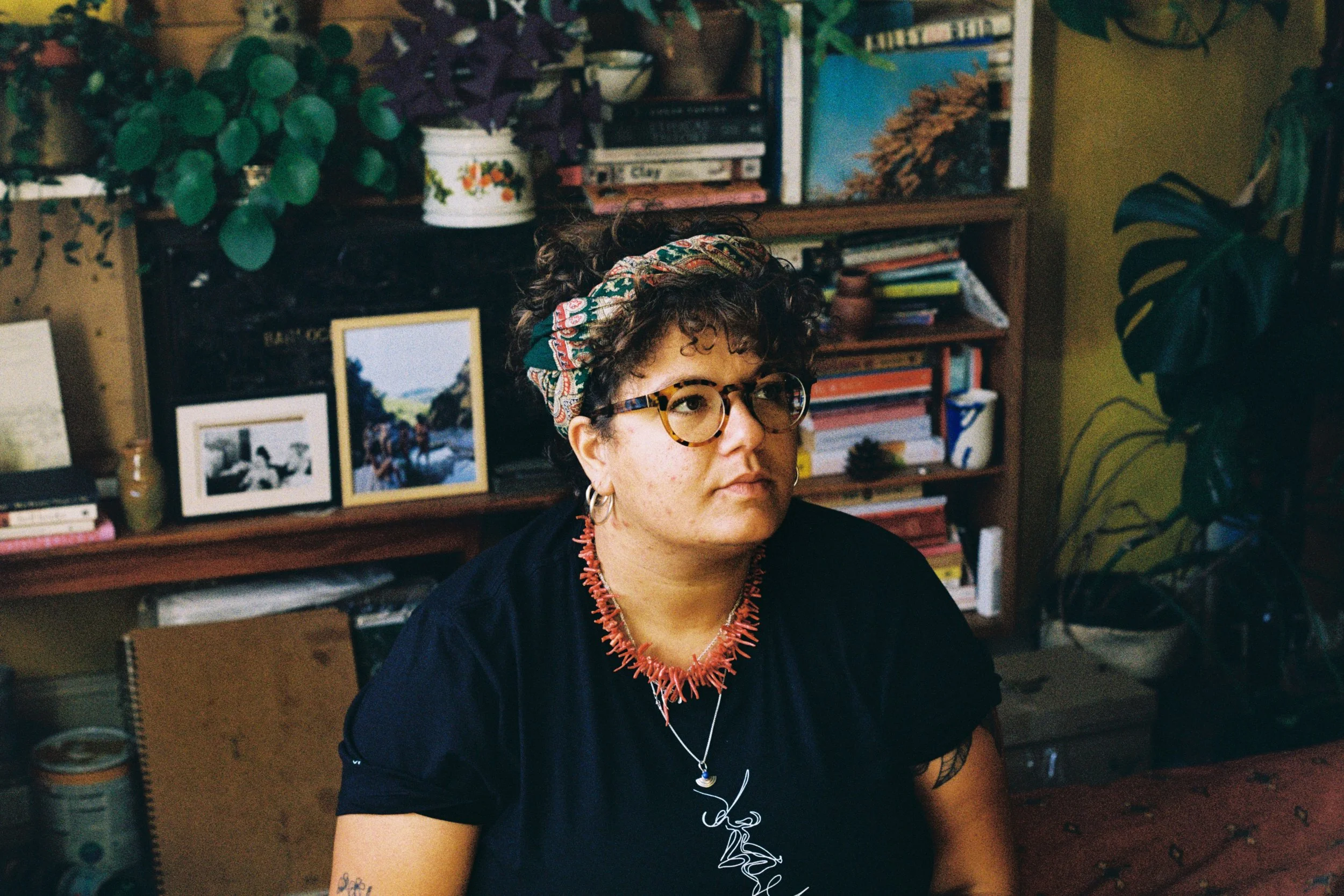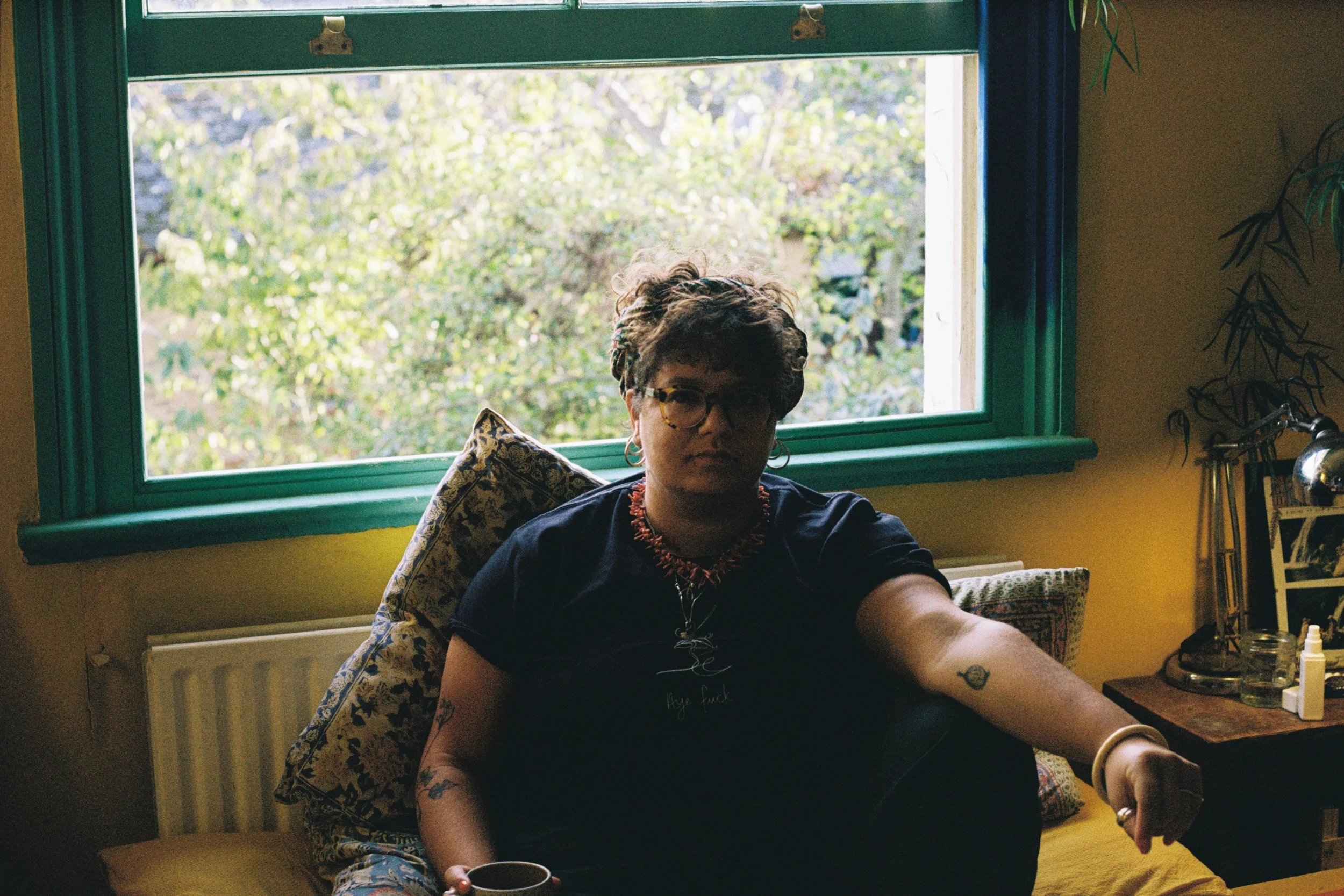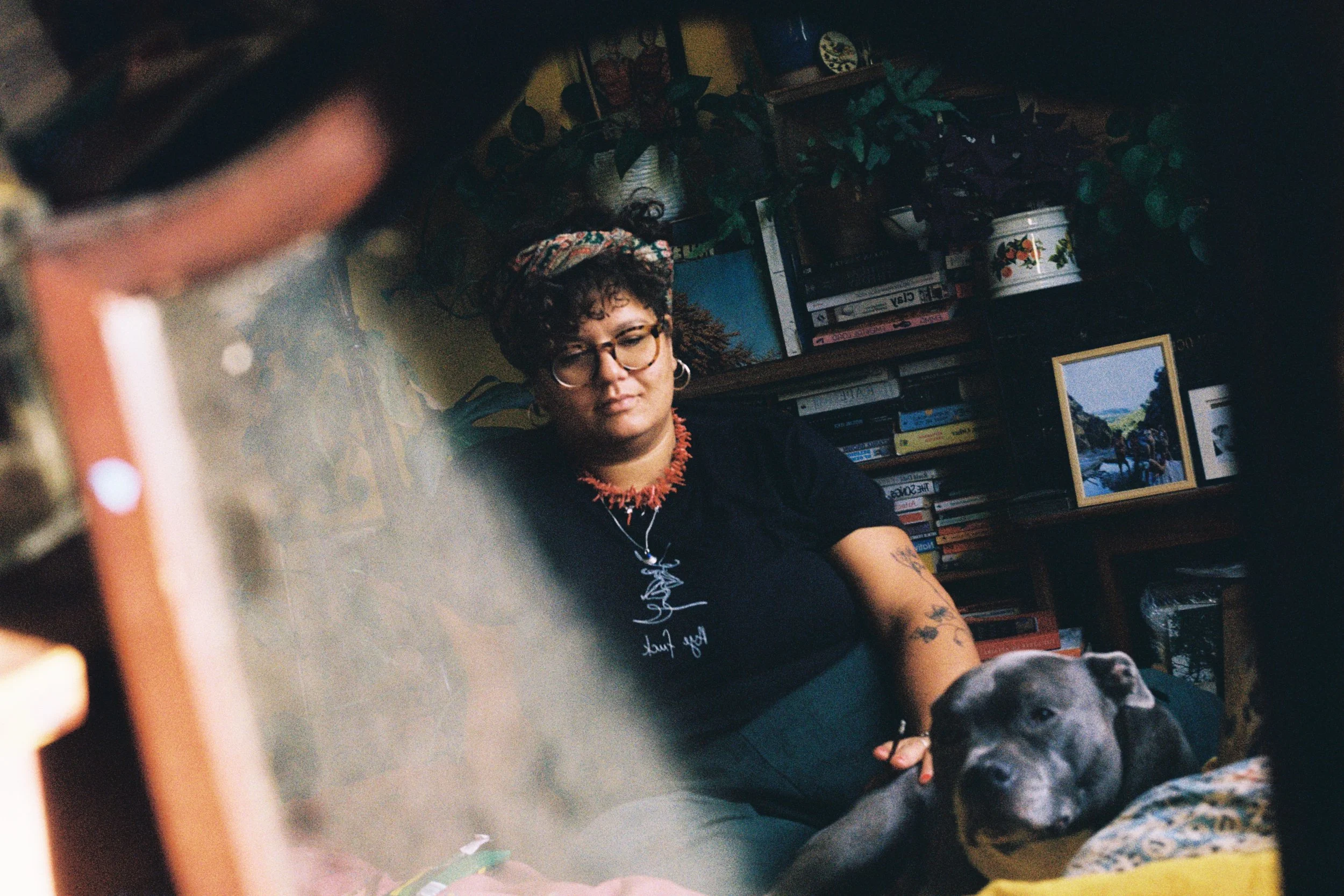
Ruth
If you grew up in the UK, your memory of sex education most likely goes all the way back to a school classroom, where you may or may not have been asked, red-faced and giggling, to put a condom on a banana.
For most of us, that was where our sex education ended, and we’ve been blundering our way through ever since. But what if our study of sex, relationships and intimacy didn’t stop there, and we instead kept upskilling throughout our adult lives?
Ruth Heneke Eliot is an educator and workshop facilitator with a fresh approach to sex education. Through her Better Sex Workshops, and the School of Sexuality Education – a charity that provides workshops on porn, consent, sexual health and more to schools – she is championing a sex-positive approach to Relationships & Sex Education (RSE) both for young people and for adults.
We sat down to speak with her about why we should keep refreshing our sex education as we get older and why the current syllabus in schools still needs work.
What makes your approach to sex education different to what we typically encounter in schools?
Ruth: Up until 2019, the only thing that was statutory for schools to teach – bearing in mind that is only for the schools that cover the national curriculum – was how pregnancy happens, how babies are made, contraception, and the risk of STI transmission within sex (and how to reduce that risk).
The general messaging of RSE was, “Don't have sex, because you'll get pregnant and die” or, “If you have sex, look at these pictures of these diseased adult genitals and live in fear that that's going to happen to you.”
Fundamentally, “sex is a scary thing that will compromise your physical health” was the vibe.
The government released new RSE guidance in 2019 that includes consent, pornography, digital media, LGBT+ identities, relationships. But it's not a sex-positive, utopian type of a document. It's still very limited, and quite notably doesn't mention the word “pleasure” once.
The in-house staff who are expected to deliver RSE are never specialists in the area. It's almost always teachers who specialise in another subject who get tasked with delivering RSE against their will- they feel deeply uncomfortable delivering this content, have had no training in how to do it, and they hold all of the same attitudes, prejudices, sex-negativity and shame that our society primes people to contend with around sexuality and relationships.
Normal provision that a young person can expect on any of the particular RSE topics (consent or ‘LGBT+ lives’ or porn) is in form time for 20-50 minutes facilitated by somebody who isn't trained to discuss sexual violence prevention or respond to disclosures, isn't familiar with gender queerness or sexuality and isn't literate in digital intimacies.
The work that I deliver in schools, and also the training I deliver to teachers through the School of Sexuality Education, is very different because we centre sex-positivity. Instead of centering narratives about the risks of pregnancy, STI transmission or sexual violence, we centre the possibility of pleasure, joy, intimacy, and fun, and frame RSE as a means for people to access these things through their intimate lives. The communication and self-awareness required inevitably involves discussing boundaries and limits around things like contraception and protection, but we don’t forget why people tend to engage with sex when we facilitate discussions about it- and for the most part it’s for pleasure, intimacy and fun.
We are non-binary in our approach, so it's not an LGBT lesson tacked on at the end of the curriculum. It's embedded in our whole curriculum.
We see RSE as important form of sexual violence prevention, and use sessions about consent, sexual violence and relationships to bust myths, challenge entitlement and shift victim-blaming and slut-shaming narratives so as to raise consciousness about the reality, causes and effects of sexual violence within broader cultural context.
We are coming from a perspective that sexuality shouldn't be this shameful, taboo, naughty thing, but should be something we can talk about openly as much as possible.
We are people who to some degree have specialised their career in this area, from medicine to the sexual violence sector to the queer education sector. We view relationships and sex ed as a specialism in and of itself. Hopefully, we do things differently.
Why do we need to keep learning about sex in adulthood?
Ruth: The grown ups in our society were young people once. They were the ones who were subjected to the appalling provision of RSE at school. It's such a misnomer to suppose that by having more sexual experiences, you gain more insight and wisdom into how to experience pleasure, intimacy, or shed shame from how you engage in your sexual imagination and erotic life.
What I hear from adults is that they are besieged by all of these things in much the same way as young people, but have an expectation that it's going to be better. When you're a teenager, you understand that you're at the start of your sexual journey. There's less of a sense then that you're supposed to know what you're doing.
In workshops with adults, I always talk about why people have sex. There's a huge variety of reasons, which are quite neatly summated by Donald Mosher as for ecstasy, for intimacy and play.
For adults, despite having a lot more sex than young people, what doesn't necessarily increase in tandem is the amount of authentic, non-performative, fun, playful, joyful, intimate, attuned, exciting, ecstatic, orgasmic, embodied sexual experiences. Most of us get into habits of having sex that is routinous or not-really-what-we-want-but-better-than-nothing or performative or disappointing or painful, or more validating than fun, or more conflict avoidant than joyful.
Adults haven't necessarily had the opportunity to learn about how to access the pleasure they seek from sex, despite being older and more sexually experienced.
Very often in workshops, the participants share that what they find most affecting is having the opportunity to talk openly about those things, which many of them haven't done before. I think that tells us something about what people are able to access with their friends, families and communities. There's no reason why adults would be less in need of opportunities to talk about sex in an open non-judgmental way.
What are some of the most important changes we need to make in how we think about sex?
Ruth: A real feat in improving our collective sexual culture would be to define sex differently. We have quite narrow sexual scripts that are represented to us in mainstream heterosexual culture. If there's an agreement to have sex, the expectations of the encounter would be something like: we'll make out, there'll be some hands on stuff, there'll be some genital touching, there might be some oral sex and then there'll be PIVing (penis in vagina-ing) until the person with the penis ejaculates.
Give or take, that is what we are shown ad infinitum on screen.
Some people are more evolved and wouldn't define sex as PIVing, because they recognise that gay people manage to fuck each other. So maybe we're allowed other orifices to be in use, or other penetrating objects, but usually there's a very set idea of what counts as foreplay and what counts as proper sex.
If we massively expand the definition of sex to include some experience that is sexual to the people involved, but that doesn't necessarily mean a particular set of actions, that could relieve an enormous amount of pressure, expectations and performance anxiety that people bring to the table, and so much shame for those who want to deviate from that script.
This hierarchy of sexual acts leads to a kind of peurile sexual culture where instead of reaching for authenticity, pleasure, joy, and connection, what we're actually reaching for is orgasming. I think that is responsible for a lot of the shit sex that a lot of us have experienced.
There's a lot of work on the orgasm gap. Laurie Mintz talks about how we define sex as an act that leaves the overwhelming majority of one of the people not having orgasms. I'm certainly not wanting to conflate pleasure with orgasm, but it's interesting that where we do, the sexual act that most reliably brings people with vulvas to orgasm is considered foreplay and fundamentally optional for most people. Tellingly, there is no orgasm gap amongst lesbians. But even for those involved who do tend to come from piving - those with penises- how often when piving is there plenty of anxiety as well- ‘am I gonna come too soon?’ / ‘am I gonna retain an erection?’ / ‘am I gonna make my partner come?’ etc
Why is bad sex important to talk about?
Ruth: The problem with the phrase “bad sex”, and one of the reasons it's so crucial to investigate it in any exploration of current sexual culture, is that it means different things to different genders in a predictable but significant way.
In general, when men describe sex as bad, they mean that they found their partner boring or they themselves didn't orgasm. When women describe sex as bad they mean they were coerced into having it and/or it was physically painful.
When we consider that most people believe that the first time people with vulvas have penetrative sex they should expect pain, bleeding and an irreversible physical change to their bodies, it's not that surprising that those same people might assimilate pain into their idea of sex so much that it becomes “bad sex” as opposed to “sex that immediately stopped or changed course because, of course, I'm not going to tolerate pain during something meant to be pleasurable and fun.”
Men do not generally expect to experience physical pain or violence within the sexual sphere and so are working with a very different scale for identifying which experiences are “bad”.
When the phrase ‘bad sex’ is used in context of pushing back against #metoo testimonies to belittle or blame or trivialise peoples’ experiences of sexual violence by saying, “no that’s not assault, that’s just bad sex” I think it speaks to where that person’s bar is for the level of respect, care and communication that we should expect from our sexual partners- however casual. Often people apply the term bad sex to nonconsensual -and therefore assaultive - situations that don’t follow the script of sexual violence being physically violent and intentionally hurtful. In reality plenty of sexual consent violations happen with no physical violence, and no conscious intention to deeply harm the other person, but a more quotidian expression of sexual entitlement and the exertion of pressure.
It seems clear to me that there is not a single, obvious line of demarcation between consent and nonconsent, pressure and freedom, capacity and incapacity. When does seduction become pressure? What about when we perform enthusiasm that we do not feel? These complexities are real and sticky and difficult to discuss, but should not be conflated with the situations most often being referred to when the term ‘bad sex’ is used- ones that are not ‘just’ bad, but actually violent.
Why do you think we need to spend more time thinking about what pleasure feels like?
Ruth: People often assume that pleasure is just orgasming, and that's really limiting. Orgasms can feel rubbish, or boring. It can feel like a relief, like doing a shit, or they can feel incredible and deeply embodying and spiritual and ecstatic and transformative.
But when we conflate pleasure with orgasming, we're going to treat orgasm as a goal in sex, which inevitably leads to feeling very anxious about it, whether that's “I'm going to come too soon” or “I'm not going to come at all. Am I broken? Am I wrong? Am I dysfunctional?” And then we might in a sexual encounter be thinking far more about whether or not we are going to have orgasmed at the right time in the appropriate way.
Talking about pleasure in a more expansive way will facilitate greater pleasure for people. That's why I'm fully on the pleasure activism train. The more pleasure, the merrier.
Photography by Ira Iosub
Words by Becca Inglis
